Spring Colloquium: Dr. Jose Capriles Flores
Recption to outside McMillan G052 immediately following talk.

Recption to outside McMillan G052 immediately following talk.
Reception to follow.
Sarah is a Ph.D. candidate of archaeology in the Department of Anthropology at the University of California, San Diego. She has been working on various projects in Peru for the last decade, mostly in the Moquegua Valley of Southern Peru where she excavated cemeteries associated with the region's Tiwanaku colonization (AD 600-1000). Her interests include most things archaeological, anthropological, and historical, but particularly mortuary archaeology, the Andes, social organization, ritual, and complex societies.
My research focuses on the ethnography and history of media in Nigeria. Most broadly I examine the introduction of media technologies into Nigeria – cinema, radio, digital media - and the religious, social and cultural changes they bring about. I explore how media technologies comprise broader networked infrastructures that shape a whole range of actions from forms of political rule, to new urban spaces, to cultural life. I have also published widely on issues of globalization, piracy and intellectual property, and Nigerian films (Nollywood) in such journals as Public Culture, Africa, Social Text and Cahiers d’Étudesafricaines.
This talk will focus on generators in Nigeria.
Reception to follow.
Leslie Reeder-Myers is a post-doctoral fellow at the National Museum of Natural History, part of the Smithsonian Institution. She received her Ph.D. in Anthropology at Southern Methodist University in 2012. As an archaeologist and geographer, she studies the impact of sea level rise and climate change on coastal populations in the past. Her current research focuses on Chesapeake Bay and on California’s Channel Islands, working to understand how ecosystems (including people) adapted to local sea level rise from the end of the Pleistocene through to the modern day. She uses GIS and computer modeling to reconstruct ancient shorelines and nearshore ecosystems in collaboration with colleagues at the US Geological Survey. She combines these reconstructions with zooarchaeological research into human subsistence and settlement practices to investigate how people used and adapted to a shifting landscape. Reeder-Myers’ current work in Chesapeake Bay combines the long-term, general environmental data from sediment cores with the detailed, short term data from small oyster middens to gain a multi-scalar understanding of ecological change through time. She also applies this work to modern conservation science, helping to explain how marine ecosystems can adapt to today’s rapidly changing human and environmental context.

Sponsored by the Sam Fox Fashion Design Department. Professor Kedron Thomas will introduce the film and share the latest findings from her research on fair labor and environmental sustainability in the fashion industry.
This is a story about clothing. It’s about the clothes we wear, the people who make them, and the impact the industry is having on our world. Directed by Andrew Morgan, The True Cost is a groundbreaking independent documentary film that pulls back the curtain on the untold story and asks us to consider who really pays the price for our clothing.
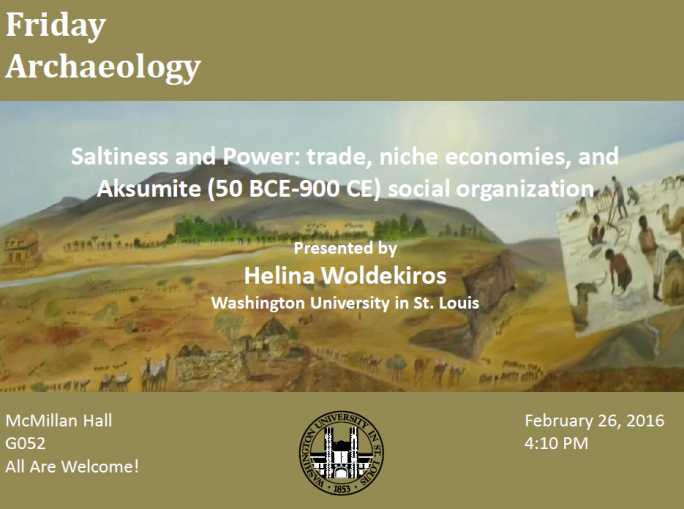
THIS EVENT HAS BEEN RESCHEDULED FOR APRIL 14TH
The search for the “origin of Homo” suggests we know what we are looking for. So unless we are clear about that, then how will we know when we have found it? It also conflates several “origins” problems. When did our ancestors and close relatives look the way we expect the earliest members of our genus to have looked? When did our ancestors and close relatives behave in the way we expect the earliest members of our genus to have behaved? The search for the origin of a living genus can be conducted either from the bottom up, or from the top down. Both strategies have their problems. This talk will explain what I am looking for when I look within the fossil record for the origins of our own genus, Homo.
Additional information on Dr. Bernard Wood.
Tom Philpott is award-winning food/agriculture correspondent for Mother Jones. His public talk is entitled "American Food Production and Two Slow Motion Ecological Crises". He will show how the US food system is highly dependent on two regions—California and the Corn Belt— both of which are in the midst of long-brewing, slow-motion ecological crises.
This talk will be followed by a coffee reception.
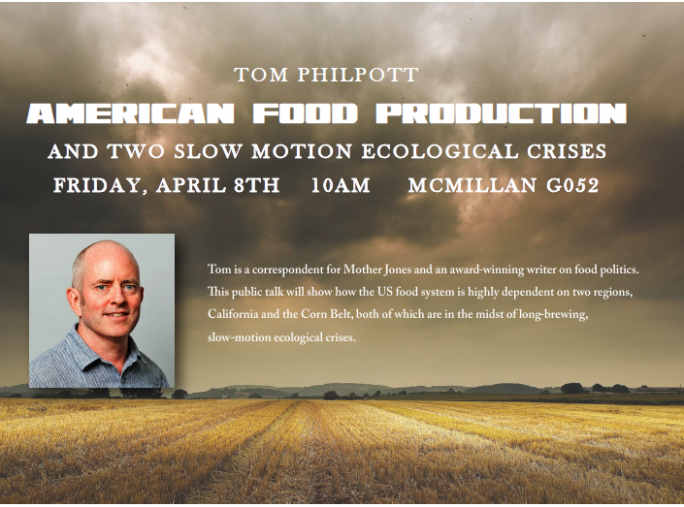
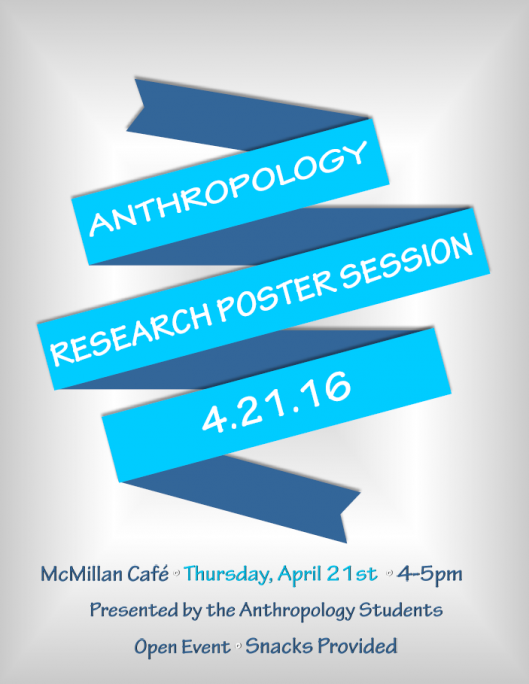
Over the past three years the Pulitzer Center has commissioned multiple reporting projects on the theme of religion and public policy, working in partnership with major media outlets and with leading universities. The Religion and Power Gateway presents Pulitzer Center reporting on these themes from throughout the world—from the explosive growth of mega churches in Africa and Latin America to intra-Islam schisms of the Middle East, to the self-immolation of Tibetan Buddhist monks and Buddhist soldiers running roughshod over the rights of Burmese Muslims, to the struggles of faith groups everywhere to come to terms with human sexuality.
This work was made possible in part through the support of the Henry Luce Foundation, in a grant that encouraged the Pulitzer Center to forge partnerships with academic specialists and institutions so as to raise the level of its journalism and extend its reach. The Center has worked in tandem with Washington University in St. Louis, American University, Yale University, the University of Chicago, the University of Southern California and the Communication University of China. It has presented joint journalism/academic symposia in Chicago, Los Angeles, Washington, New Haven and Beijing. The daylong conference in St. Louis marks the capstone of this initiative and we hope the launchpad for work to come.
8:30-9:00am Arrival and coffee
Women’s Building Formal Lounge
9:00-9:15am Welcome
John Bowen, Washington University
Jon Sawyer, Executive Director, Pulitzer Center
9:15am-10:30pm Panel I: Religion and Environment
Pope Francis’s encyclical on the environment helped shift public opinion—and policy— in the lead-up to the historic climate-change agreement in Paris. Religious and cultural influences are a factor in China’s growing environmental awareness and an emerging theme in inter-faith dialogues on environment in the U.S. and Europe.
Panelists:
Liu Jianqiang, environmental journalist and Buddhist, China Dialogue
Jon Sawyer, Executive Director, Pulitzer Center
Justin Catanoso, Associate Professor, Journalism, Wake Forest University
Moderator: Tim Townsend, News Editor, Timeline.com; former religion reporter, St. Louis Post-Dispatch
10:30-11:00 am Break
11:00am-12:15pm Panel II: Religion and Reproductive Rights
How faith shapes public policy—an examination of how religious belief and tradition play a critical role in defining evolving attitudes toward family planning, reproductive health and the global hot-button issue of abortion. Case studies from Africa, Southeast Asia and the United States.
Panelists:
Tom Hundley, senior editor, Pulitzer Center
Laura Bassett, Huffington Post
Cynthia Gorney, National Geographic, author of “Articles of Faith”
Lauren Herzog, World Faiths Development Dialogue, Berkley Center, Georgetown University
Moderator: Tim Townsend
12:15-1:45pm Catered Lunch
1:00 pm Introduction: Holden Thorp, Provost
Speaker: Marie Griffith, Director, John C. Danforth Center on Religion and Politics
2:00-3:15pm Panel III: Assimilation or Confrontation? The Muslim Experience in Europe, the United States, and Beyond
Assimilation or Confrontation: How the Muslim experience is expressed in Europe, America and beyond. The radicalized minority and the trickle of recruits to jihadist groups dominate the headlines, but the mainstream of Islam in the United States and Europe is seeking ways to adjust and accommodate itself to societies in which it is not the dominant faith.
Panelists:
John Bowen, Washington University
Geneive Abdo, non-resident fellow, Brookings Institution
Sherria Ayuandini, Washington University
Nick Street, University of Southern California
Maryam Kashani, Danforth Center on Religion and Politics, Washington University
Moderator: Tom Hundley, Senior Editor, Pulitzer Center
3:15-3:30 pm Break
3:30-4:45 pm Panel: Global Issues, Local Debate
Politicians are calling for the exclusion of Muslim immigrants. Climate-change denial remains for many a touchstone of religious faith. Abortion clinics are the focus of bitter, sometimes violent, protest. In a time of polarization and anger can religious faith be a force for positive dialogue and political consensus?
Panelists:
Shaun Casey, Special Representative, Religion and Global Affairs, State Department
Marie Griffith, Danforth Center on Religion and Politics, Washington University
Don Belt, University of Richmond, Out of Eden Walk Project
Ann Peters, Campus Consortium Director, Pulitzer Center
Moderator: Kem Knapp Sawyer, contributing editor, Pulitzer Center
4:45-5:00 pm Closing Remarks
Jon Sawyer, Pulitzer Center
John Bowen, Washington University
5:00 – 6:00 pm Reception
6:00pm Public Forum:
Welcome: James Wertsch, Vice Chancellor, Washington University
Speaker: Shaun Casey, Special Representative, Religion and Global Affairs, State Department
Title: What’s Religion Got To Do With Foreign Policy?
Moderator: Jon Sawyer, Pulitzer Center

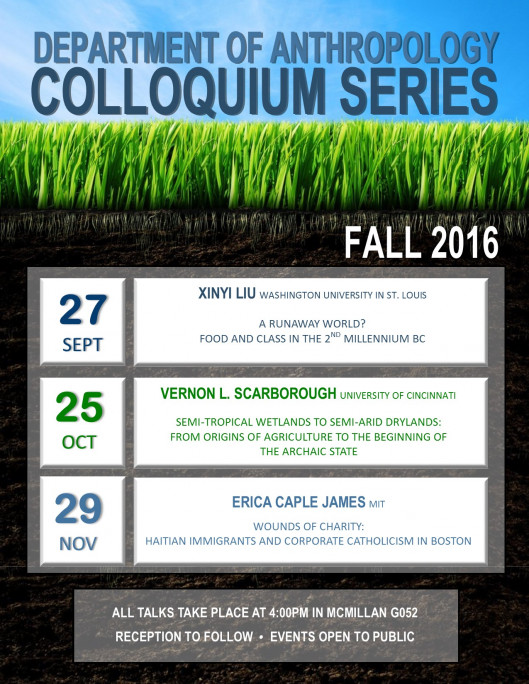


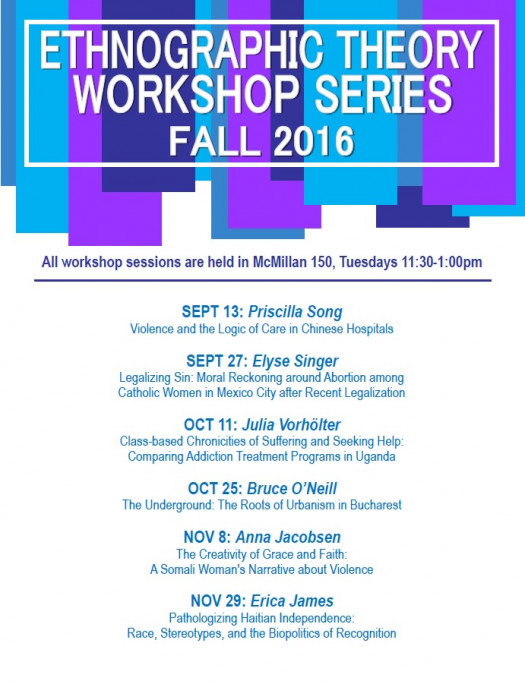




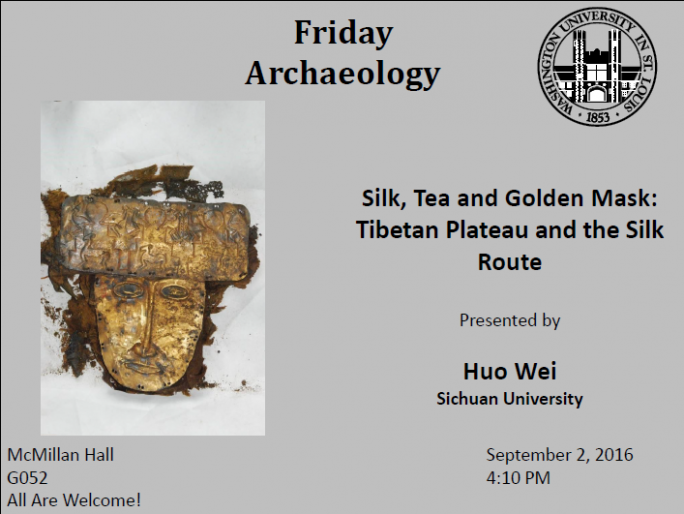
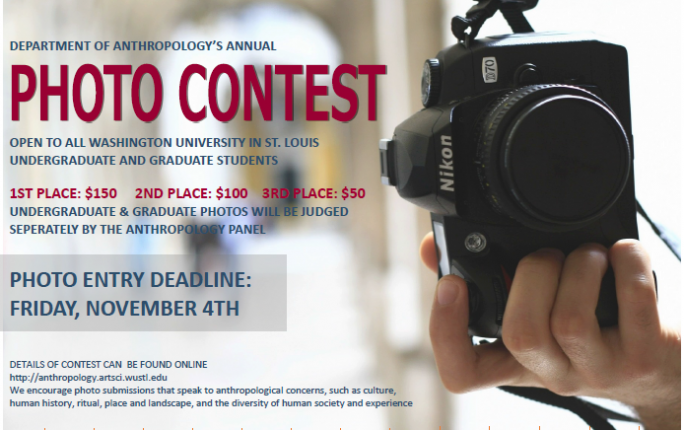

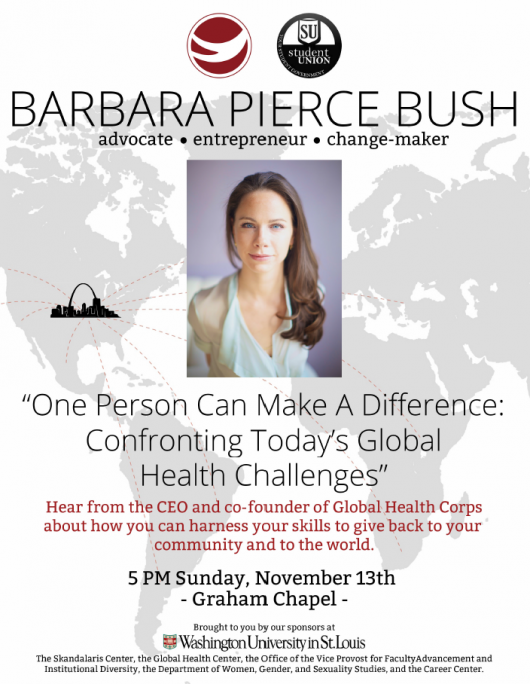
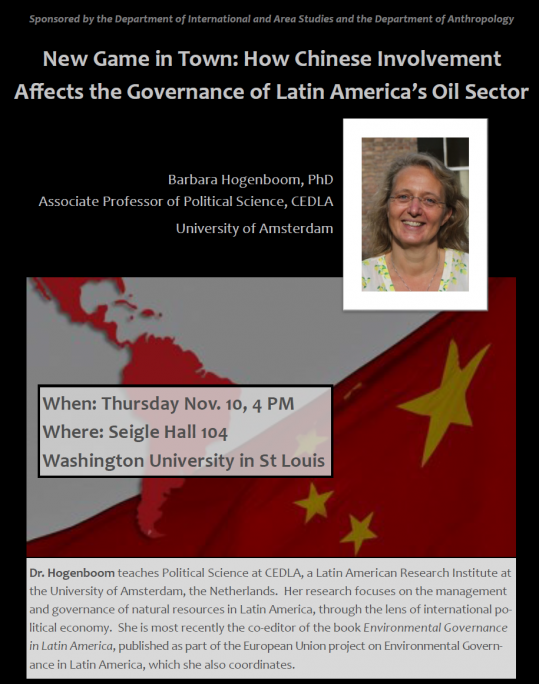
Adrienne Strong is a sociocultural graduate student with the Department of Anthropology here at Washington University in St. Louis. Her dissertation research focuses on maternal health and mortality in Tanzania. Through her field work, she has looked into the regional hospital's social and bureaucratic environment and how those facotrs influence women's experience as patients.
For more information on Adrienne Strong, visit her website.
Lynn Morgan is a Professor of Anthropology at Mount holyoke College. Her specializations include medical anthropology, the anthropology of gender and sexualities, reproductive governance in Latin America, Central America, and the Ecuadorian Andes.
For more information on Lynne Mogran, visit her faculty page at Mount Holyoke.

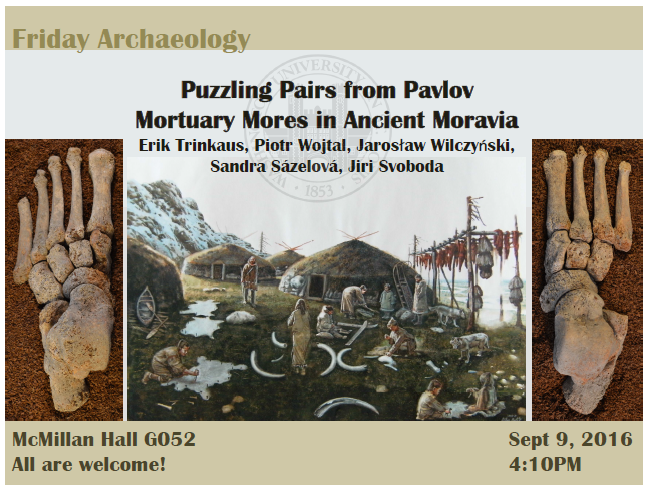
In August 2015, mounds of garbage piled up in major Lebanese cities, leading to the biggest non-sectarian protest since the end of the civil war (1991). For a couple of weeks in August and September, Beirut witnessed daily demonstrations, often turning violent, protesting against the corruption of the government. What started as a localized protest against the government’s mismanagement of the waste management sector quickly turned into a crisis of legitimacy of the political system. In a context of global uprisings and regional revolutions, the short-lived protest movement signaled the entry of Lebanon in the current global cycle of discontent. The country did not witness a major upheaval similar to what happened in neighboring countries, but similar processes of de-legitimization of the established political orders are taking place. The talk will examine what came to be known as the “trash uprising,” by locating it in its historical trajectory before presenting some of its afterlives. Through an examination of the protest movement, the talk will put the Lebanese ‘trash uprising’ in conversation with the global wave of protests that started in 2011, in order to probe the changing contours of the present and its discontent.
Reception outside McMillan G052 immediately following talk.
Dr. Kylie Quave is currently with Beloit College. Kylie uses archaeology and ethnohistory to reconstruct state development and its impacts on people’s lives. Her interests lie in understanding how states and empires in prehistory and recent history organize their economies and use their constituents to uphold social inequalities. Kylie’s research focuses on ancient domestic economies, how they articulate with larger political economies in states, and what that tells us about community cooperation and resistance to imperial rule. She currently carries out this research in highland Peru, focusing on the pre-Inca to Spanish Colonial periods (c. 1000-1700 CE). Her dissertation was a study of forcibly migrated retainer populations serving Inca nobles near the imperial capital, and sought to understand how labor was coerced through multiple strategies. A recent development of this work has been the excavation of households within a neighboring community allied with the Inca, to contrast migrant experiences with those of cooperative locals.
Kylie applies her research interests to better understanding human prehistory and history in the classroom, with relevant connections drawn to the real world. She challenges students to use the archaeological past as a harbinger of what’s to come and as a critical study of how we interpret our present. Kylie is teaching courses on the overview of human prehistory and quantitative research methods. She emphasizes student training in her Peruvian projects, co-publishes and co-presents work with students, and encourages independent research.
Helina Woldekiros is a Postdoctoral Research Associate in Archaeology with the Department of Anthropology at Washington University in St. Louis. Her work focuses on human adaptations in the Horn of Africa during the beginnings of food production, agricultural diets, pastoralism and mobile responses to climatic change in extreme ecological/environmental settings.
For more information on her research and publications, visit her page.
Lynn Morgan is a Professor of Anthropology at Mount holyoke College. Her specializations include medical anthropology, the anthropology of gender and sexualities, reproductive governance in Latin America, Central America, and the Ecuadorian Andes.
For more information on Lynne Mogran, visit her faculty page at Mount Holyoke.
Heather O'Leary is a lecturer for the Department of Anthropology here at Washington University in St. Louis. She is an interdisciplinary environmental anthropologist with deep commitment to teaching students about power disparities, natural resource distribution, and intersectionality.
For more on her research, visit her page.
Helen Human is the International Scholarship and Fellowship Advisor with the Overseas Programs here at Washington University in St. Louis.
For more information on the Overseas Program Office, visit their website.

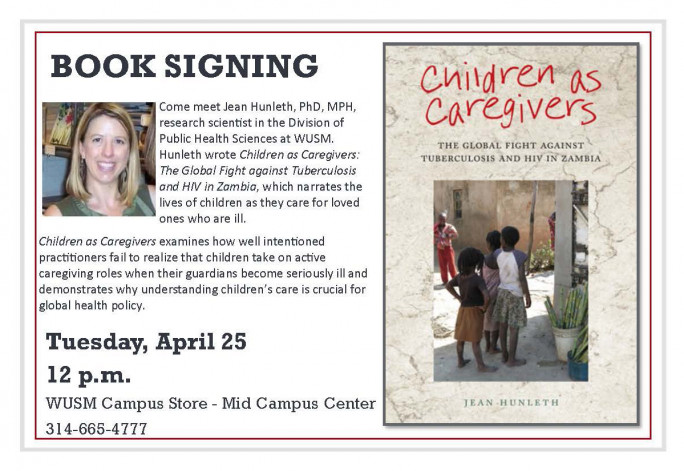
Dominic Boyer is a Professor of Anthropology at Rice University. His two main lines of research relate to media and knowledge in modern society as well as the contributions of energy systems to modern political culture.
This event has been canceled and postponed until Spring 2018.
In his most recent book, Tropic of Chaos: Climate Change and the New Geography of Violence, New York University sociologist Christian Parenti examines the deadly fallout of climate disasters in the Global South. The veteran journalist and documentary filmmaker also is a contributing editor for The Nation.
This talk has been rescheduled for November 21st at 4PM in McMillan Hall G052.
This talk was originally scheduled for October 24th but was rescheduled for November 21st.
The Graduate Association for Food Studies will hold their annual The Future of Food Studies Graduate Conference at Washington University in St. Louis between Thursday, October 19th through Saturday, October 21st.
The keynote speaker will be Professor Krishnendu Ray, acclaimed food studies scholar and chair of the Food Studies department at New York University. Professor Alison Alkon of the University of the Pacific will be delivering the plenary address on food justice. Additionally, a select number of student papers presented at the conference will be considered for publication in the Graduate Journal of Food Studies, an open-source, peer-reviewed graduate journal publishing food-related research.
Registration is now closed for this event.
The Department of Anthropology is pleased to announce its 2017 annual undergraduate photography contest. We invite submissions from all Washington University undergraduates.
1. Photos should be related to your research or studies in anthropology and you must have been a Washington University undergraduate in 2017.
2. Anthropology majors and minors, and public health minors, are especially encouraged to apply, although the contest is open to all students;
3. We encourage photo submissions that speak to anthropological concerns, such as culture, human history, ritual, place and landscape, and the diversity of human society and experience;
4. By submitting photos you grant permission to the Department of Anthropology to publish them online or in brochures and to display them;
5. You may submit up to 8 photos and they must be in digital form (jpg or tif with resolution of at least 1 megapixel in size). Each photo should be accompanied by a word processing document that includes your name and a short description of when and where the photo was taken, what you were doing there, and what it depicts;
6. Photos will be judged first on artistic merit and secondarily on anthropological content;
7. First prize will be $150; second prize will be $100; and third prize will be $50. The winning photos (and possibly honorable mentions) will be featured on the department website and outside the department office;
8. All participants must have obtained permission to photograph any human subjects in the submitted images;
9. Submit your photos to calin.sterling@wustl.edu
1. Photos should be related to your research or studies in anthropology and you must currently be a student in the Department of Anthropology Graduate Program
2. We encourage photo submissions that speak to anthropological concerns, such as culture, human history, ritual, place and landscape, and the diversity of human society and experience;
3. By submitting photos you grant permission to the Department of Anthropology to publish them online or in brochures and to display them;
4. You may submit up to 8 photos and they must be in digital form (jpg or tif with resolution of at least 1 megapixel in size). Each photo should be accompanied by a word processing document that includes your name and a short description of when and where the photo was taken, what you were doing there, and what it depicts;
5. Photos will be judged first on artistic merit and secondarily on anthropological content;
6. First prize will be $150; second prize will be $100; and third prize will be $50. The winning photos (and possibly honorable mentions) will be featured on the department website and outside the department office;
7. All participants must have obtained permission to photograph any human subjects in the submitted images;
8. Submit your photos to calin.sterling@wustl.edu
For more information, please contact Calin Sterling in the Department of Anthropology at 935-8801
13TH is a 2016 American documentary by director Ava DuVernay. The film explores the "intersection of race, justice and mass incarceration in the United States;" it is titled after the Thirteenth Amendment to the United States Constitution, which freed the slaves and prohibited slavery (unless as punishment for a crime). View the trailer for the documentary here.
Please RSVP here using our Qualtrics Survey https://wustl.az1.qualtrics.com/jfe/form/SV_4Ji3CiFGUOuUwhn
Ann Laura Stoler
Willy Brandt Distinguished University Professor of Anthropology and Historical Studies
The New School for Social Research
5 p.m.
Wilson 214
Reception to follow the lecture
Co-sponsored by the Department of History
The lecture is free and open to the public
This project is part of an extended effort to identify some of the conditions that produce ways of thinking and being about what is rendered inside and outside the circumferences of comfort and the circumscribed parameters of care. It explores how those demarcations, and what Clifford Geertz once called the“delicacies of distinction,” are drawn. The paper makes a case for thinking about what Etienne Balibar once called the “astonishing” term “interior frontiers,” touching on some chilling features of the relationship between personal and polity, as well as on why closure, confinement, and removal from the “interior” are made to make ‘common sense.’ Professor Stoler looks at the polyvalence of a term “interior frontiers” that both promises comfort and, even in its most seemingly benevolent strains, invests in the distinctions of human kinds and appraisals of inequitable worth.
Ann Laura Stoler is Willy Brandt Distinguished University Professor of Anthropology and Historical Studies at The New School for Social Research. Stoler is the director of the Institute for Critical Social Inquiry. Her research focuses on the politics of knowledge, colonial governance, racial epistemologies, the sexual politics of empire, and ethnography of the archives. Her books include Capitalism and Confrontation in Sumatra’s Plantation Belt, 1870–1979 (1985; 1995) Race and the Education of Desire: Foucault’s History of Sexuality and the Colonial Order of Things (1995), Carnal Knowledge and Imperial Power: Race and the Intimate in Colonial Rule (2002, 2010), Along the Archival Grain: Epistemic Anxieties and Colonial Common Sense (2009) and the edited volumes Tensions of Empire: Colonial Cultures in a Bourgeois World (with Frederick Cooper, 1997), Haunted by Empire: Geographies of Intimacy in North American History (2006), Imperial Formations (with Carole McGranahan and Peter Perdue, 2007), Imperial Debris: On Ruins and Ruination (2013), and Duress: Imperial Durabilities in Our Times (2016).
For more information email: ecocriticalsawyer@wustl.edu or visit:
The Washington University Libraries’ Student Engagement Committee is pleased to be holding a free campus screening of the new documentary, Jane, on this Thursday, November 2 at 3pm in Brown Hall room 118. Jane, which recounts the early career of Jane Goodall, reveals aspects of the legendary primatologist’s work and relationships, all via Jane Goodall’s own words. The film’s imagery is culled from hundreds of hours of never-before-seen footage of Goodall in Gombe, Tanzania, doing her pioneering work in the 1960s. Jane, which premiered at the Toronto International Film Festival in September, has received stellar reviews, including these reviews from Indiewire and The Hollywood Reporter:
http://www.indiewire.com/2017/09/jane-review-goodall-documentary-tiff-1201876507/
https://www.nytimes.com/2017/10/20/movies/jane-goodall-documentary-marriage.html
Jane has yet to premiere in St. Louis, and thus this is the first opportunity to see this extraordinary documentary locally, and it’s available only to the campus community. It is a film that is sure to inspire students, especially those interested in science and anthropology.
The screening will include an introduction by Washington University Associate Professor of Biological Anthropology Crickette Sanz. The screening is made possible through partnership with the St. Louis International Film Festival. A flyer for the event is attached. Please feel free to promote to any faculty, students, or student groups who you think might want to come.
GIS Day is an international event, now nearly 20 years old, which promotes spatial awareness, geography and geographic information systems (GIS). This year our theme of GIS in the Community will include on-campus speakers describing how they use GIS to impact community as well as an off-campus community service learning project.
The Agri-Food research discussion group are open to all undergraduate and graduate students at Washington University in St. Louis. For more information, contact Glenn Stone.
Sunday, November 5, 2 pm
The Farrell Auditorium
Thomas Struth, photographer
$20/$15 Members.
Internationally celebrated photographer Thomas Struth will take part in a cross-disciplinary panel to discuss his images of technological frontiers on view in Nature & Politics. The panelists will bring different perspectives on technology to bear on the work, engaging with broader issues raised at the intersection of art, science, and culture. Panelists include:
Sherria Ayuandini is a Sociocultural Graduate Student with the Department of Anthropology here at Washington University in St. Louis. Her focus of study is medical anthropology, specifically a medical procedure called hymenoplasty. Sherria looks at this procedure in the Netherlands in the context of migration issues, women empowerment, and religion.
For more information on her research and publications, visit her page.
Dr. Krista Milich is a primate behavioral ecologist and socioendocrinologist with a particular interest in reproductive physiology and sexual selection. Her work aims to not only understand the proximate and ultimate mechanisms associated with the evolution of primate social systems, but also to use that knowledge to inform primate conservation efforts.
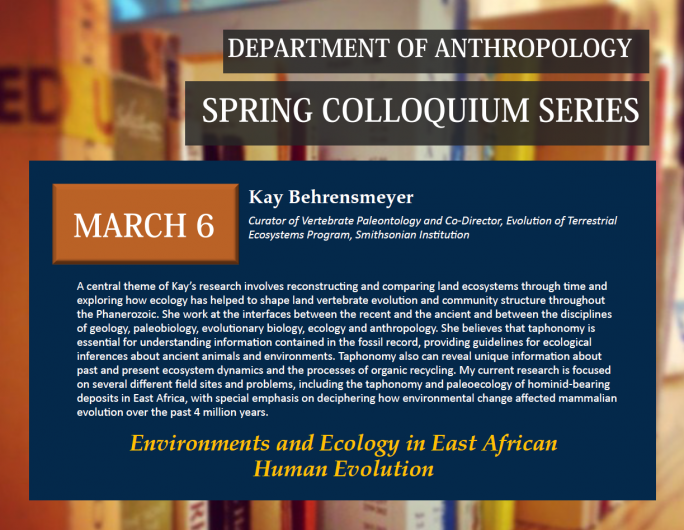
Michael Frachetti will be presenting his talk "Open Source Civilization and the Unexpected Origins of the Silk Road" on Monday, February 26 at 7:30PM (Pacific Standard Time) at the SFJAZZ Center in San Francisco. The presentation is part of Seminars About Long-Term Thinking through The Long Now Foundation.
Travel the ancient Silk Road with an archaeologist researching a revolutionary idea.
The Long Now Foundation was established in 01996* to develop the Clock and Library projects, as well as to become the seed of a very long-term cultural institution. The Long Now Foundation hopes to provide a counterpoint to today's accelerating culture and help make long-term thinking more common. We hope to foster responsibility in the framework of the next 10,000 years.
The Long Now Foundation produces two monthly audio podcasts, one for each of their ongoing lecture series, which you can subscribe to. Long Now podcasts and videos are free for everyone to enjoy thanks to the support of their donors and Long Now members.
The Long Now Foundation's monthly Seminars were started in 02003 to build a compelling body of ideas about long-term thinking; to help nudge civilization toward our goal of making long-term thinking automatic and common instead of difficult and rare.
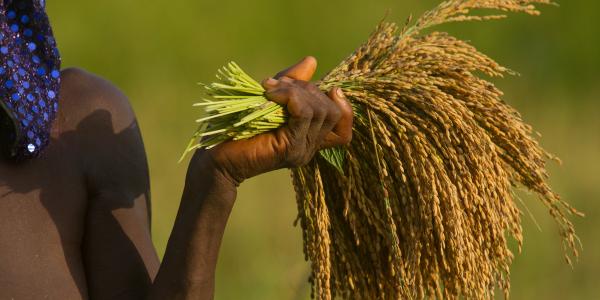
The popular image of Africa today is of a hungry continent, a continent chronically unable to feed itself, one that continually requires foods from other lands to keep its citizens from starvation. Yet this was not always so. Africans fully participated in the process of plant and animal domestication that occurred across the globe many thousands of years ago. Even during the period of transatlantic slavery, Africans in the New World actively instigated the cultivation of African food plants such as okra, yams, sorghum, millet, rice, and black-eyed peas. In their food fields, the enslaved Africanized the foodways of plantation societies that today are the celebrated cuisines of the African diaspora.
This talk shifts our usual historical focus from the export crops slaves produced to the foods they planted for their own subsistence. Emphasis is on the role of African foods in provisioning the transatlantic slave trade, the slave ship as a medium for their circulation, and the slave food plots where these foods initially appeared. Slave ships carried African foodstaples and food animals along with enslaved peoples familiar with their cultivation and husbandry. My discussion underscores the significance of the transatlantic slave trade for the circulation of African plants, animals, and natural knowledge in the Atlantic World.
Helina S. Woldekiros will discuss the biodiversity of African domestic chickens and their introduction to Africa from their Asian origin. She will also discuss the routes by which they both entered and dispersed across the continent.
For more information about the seminar and the Living Earth Collaborative/EEPB Biodiversity Seminar Series, please click here.
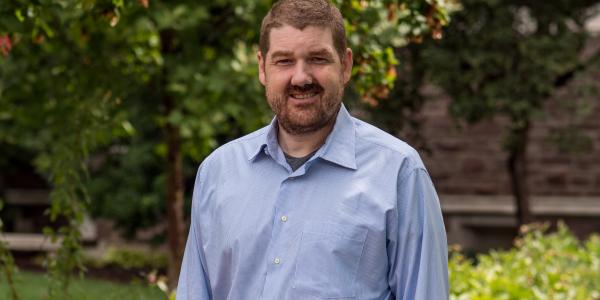
Dr. Peter Benson is an Associate Professor of Sociocultural Anthropology and the Director of American Culture Studies at Washington University in St. Louis. Dr. Benson’s research looks at cultural politics and contemporary capitalism in the United States, and the racial assemblages and corporate forms that are related to the production of harm. His primary focus has been the history and ethnography of tobacco agriculture and racialized labor in the American South. He is currently writing an artistic autobiography, a medley of campus novel, pop culture compendium, and survival guide for the end of the world and life during wartime.
Professor John Bowen’s research explores broad social transformations now taking place in the world-wide Muslim community, including special emphasis on Muslim life in Indonesia, the world’s largest Muslim nation.
For her PhD research Hardon did extensive anthropological fieldwork on self care in urban poor communities in Manila. Since, she has been involved in comparative studies of health care arrangements, focusing on the global diffusion of contraceptive technologies and modern pharmaceuticals in primary health and family planning programs.
Professor Monica Eppinger teaches and writes in the areas of property, comparative and international law, national security, and anthropology of law. She holds a secondary appointment in the Department of Sociology and Anthropology.
Professor Bret Gustafson's work focuses on the anthropology of politics and the political, with a particular interest in Latin American social movements, state transformation, and the politics of development.
Joe Bosco is a Cultural anthropologist who has taught for 24 years in the Department of Anthropology at The Chinese University of Hong Kong. Joe Bosco is currently a Research Associate with the Department of Anthropology at Washington University in St. Louis, Missouri. His research focuses on the risk of pesticides from villagers’ point of view.
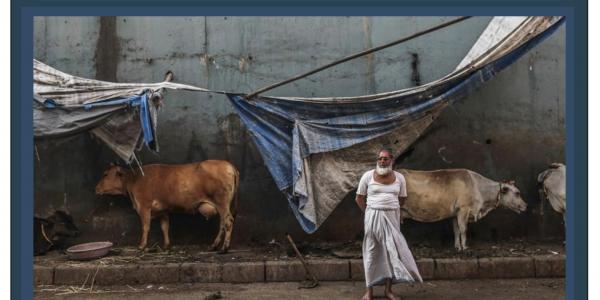

Abstract:
Long before the Inca imperial expansion in the fourteenth century CE, ancient Andean communities had shaped truly anthropogenic environments, which both yielded their staple crops and grounded their deepest cultural values. In this presentation, I explore agricultural intensification and the role of plant foodways—fundamentally embodied in the relationships between people, their environments, and the plants that they carefully managed—in the broader history of social, political, and economic changes that took place during the consolidation of the Southern Moche State of north coastal Peru during the Early Intermediate Period (400 BCE-800 CE). Incorporating archaeobotanical, environmental, and ethnohistorical evidence, I address changes in food production, processing, and consumption over five cultural horizons to critically re-evaluate existing models of Moche sociopolitical development, from a bottom-up perspective of the laborers in rural households whose agricultural production supported the growth and florescence of this complex society. I conclude with a discussion of my current research project, which addresses similar themes in the Mississippian period Central Illinois River Valley of west-central Illinois during the eleventh and twelfth centuries CE.
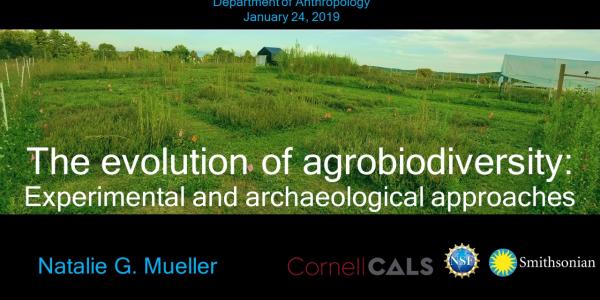
Abstract:
Agrobiodiversity is a priceless but threatened resource. It took over 10,000 years of evolution under human management and selection to create the many varieties of crops and crop relatives that are available today, and many of these only exist in seed banks. While extant crop diversity is impressive, there is increasing evidence that many more crops and useful variants were lost in antiquity. Moreover, our knowledge of the practices and circumstances that tend to increase agrobiodiversity is limited and there are fewer and fewer living communities where this process can be studied. I use two case studies from my current research in eastern North America and Kenya to illustrate that the archaeological record, coupled with experimental methods, has an untapped potential to reveal lost crops and practices, as well as the social conditions that create and support agrobiodiversity. These are pressing concerns in an era of ecological knowledge loss, global climate change, and population growth.
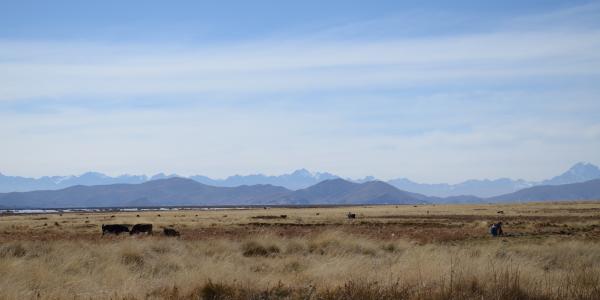
Abstract:
Over 3500 years ago human settlement on the shores of Lake Titicaca began and has been sustained into the present through dynamic combinations of farming, herding, and fishing. While the Titicaca Basin is one of the most productive regions of the high, dry Andean altiplano, it is subject to significant changes in rainfall and temperature causing the lake itself to rise and fall, modifying the physical properties in which human communities make a living. I will present new data from the Taraco Archaeological Project on environmental fluctuations in the small lake basin, and shifts in crop management and landuse strategies across the Formative (1500 BCE-500 CE) and Tiwanaku (500-1100 CE) periods on the Taraco Peninsula, Bolivia. I argue that Taraco farmers successfully responded to frequent environmental shifts through diverse and flexible cropping strategies. This involved continued cultivation of hardy species such as quinoa while also adding in new varieties and species of tubers and chenopods, and eventually maize. They also maintained flexible landuse strategies that allowed for shifting of economic activities as the lakeshore and rainfall regimes changed. These dynamic interactions between human communities and the environment resulted in sustainable agricultural landscapes, components of which continue into the present day.
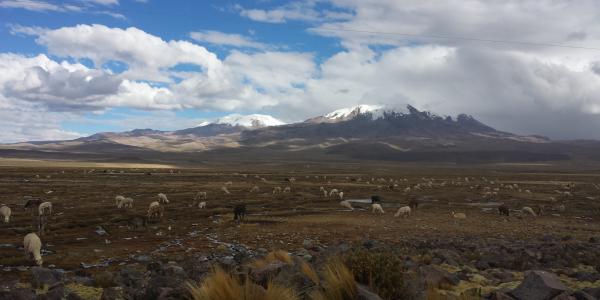
Abstract:
Paleoethnobotany, the specialized analysis of plant remains, can advance archaeological understanding of past lifeways. Methodological advancements, the rigorous application of paleobotanical techniques, the use of multiple lines of evidence, and interdisciplinary research are central to develop robust explanations and continue paleoethnobotany’s growing importance within archaeology. These topics will be highlighted while presenting past, current, and future research from Ecuador, Peru, and beyond – focusing on the unifying themes of the development socio-cultural complexity, cultural interaction, and human adaptation.
Washington University in St. Louis is hosting the 2019 Annual Spring Meeting of the American Ethnological Society (AES), oldest professional anthropological organization in the U.S. founded in 1842. The conference theme is Ethnographic Futures. Five years after protests in Ferguson around racialized police brutality, plenaries, paper sessions, and roundtables reflect and theorize possible unfoldings of the future in specific locales and explore how people with whom we study and collaborate imagine, create, participate, and refuse. The conference is co-hosted by the Association of Latina/o Anthropologists (ALLA) and Association of Black Anthropologists (ABA). The conference will be held Thursday, March 14th to Saturday, March 16th. Registration is open until the end of the conference.
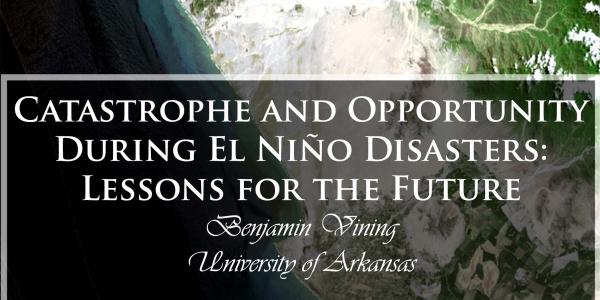
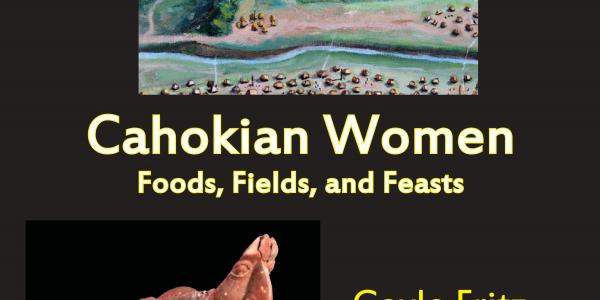
Gayle J. Fritz, Professor Emerita of Anthropology at Washington University in St. Louis.
Of Fire and Stone: Cremation and Secondary Burial Practices at Noomparrua Nkosesia, Southwest Kenya. Presented by Lorraine Hu, Graduate Student of Archaeology, Washington University in St. Louis.
The Archaeothantology of Mummy Bundles at Los Batanes, Sama Valley, Peru. Presented by Abigail Wippel, Undergraduate Student, Washington University in St. Louis.
Investigation of Defensive Perimeter Architecture in the Sama Valley, Peru. Presented by Abby Baka, Undergraduate Student, Washington University in St. Louis.
For more information, click here.
For more information, click here.
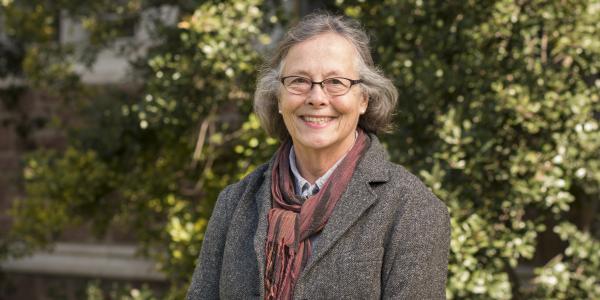
Professor Emerita of Anthropology Gayle J. Fritz will discuss her new work, "Feeding Cahokia: Early Agriculture in the North American Heartland.
About the book: “Feeding Cahokia: Early Agriculture in the North American Heartland" presents evidence to demonstrate that the emphasis on corn has created a distorted picture of Cahokia’s agricultural practices. Farming at Cahokia was biologically diverse and, as such, less prone to risk than was maize-dominated agriculture. Gayle J. Fritz shows that the division between the so-called elites and commoners simplifies and misrepresents the statuses of farmers—a workforce consisting of adult women and their daughters who belonged to kin groups crosscutting all levels of the Cahokian social order. Many farmers had considerable influence and decision-making authority, and they were valued for their economic contributions, their skills, and their expertise in all matters relating to soils and crops. Fritz examines the possible roles played by farmers in the processes of producing and preparing food and in maintaining cosmological balance."
For more information: https://happenings.wustl.edu/event/faculty_book_talk_gayle_j_fritz#.Xc1vzlVKiUl
*Due to issues surrounding health concerns related to COVID-19/the coronavirus, this event has been CANCELED until further notice.*
*Due to issues surrounding health concerns related to COVID-19/the coronavirus, this event has been CANCELED until further notice.*
*Due to issues surrounding health concerns related to COVID-19/the coronavirus, this event has been CANCELED until further notice.*
*Due to issues surrounding health concerns related to COVID-19/the coronavirus, this event has been CANCELED until further notice.*
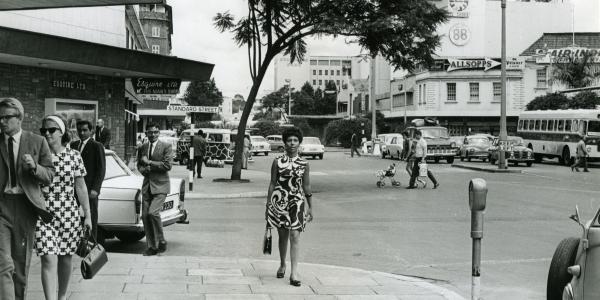
This talk will explore racial and gendered placemaking practices in colonial Nairobi using archival letters from a group of European settler women who called themselves, ‘The Housewives.’ These letters not only make visible intimate, physical, transgressive interactions that often remain invisible in the colonial record, but they also give us a glimpse of African women and men insisting on their ‘right to the city’ and provide a snapshot of African refusal from both passengers and workers, across gender, ethnicity and neighborhood.
This event is sponsored by the African & African American Studies, History and Anthropology Departments
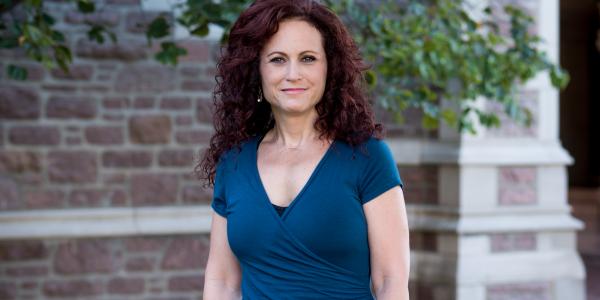
Rebecca Lester, associate professor of sociocultural anthropology, will discuss her book "Famished," the culmination of over two decades of anthropological and clinical work, as well as a lifetime of lived experience, presents a profound rethinking of eating disorders and how to treat them.
Through a mix of rich cultural analysis, detailed therapeutic accounts, and raw autobiographical reflections, "Famished" helps make sense of why people develop eating disorders, what the process of recovery is like, and why treatments so often fail. It’s also an unsparing condemnation of the tension between profit and care in American healthcare, demonstrating how a system set up to treat a disease may, in fact, perpetuate it. Read more about the book in this profile from The Source.
Refreshments will be provided, and books will be available for purchase and signing. Free and open to all.
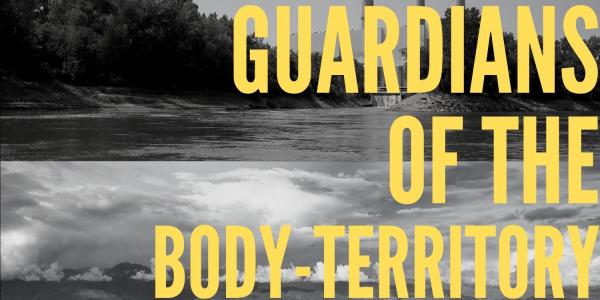
*Due to issues surrounding health concerns related to COVID-19/the coronavirus, this event has been CANCELED until further notice.*
A transnational dialogue on toxic landscapes bringing women together from communities in Peru and Missouri struggling against industrial activities. Mirtha Villanueva, from Cajamarca, Peru, and Patricia Schuba, from Labadie, MO, are grassroots intellectuals speaking and sharing insights on their experiences. The symposium is a space of articulation between local and global struggles for environmental justice.
The symposium will be followed by the opening of the “Guardians of the Body-Territory // Guardianas del Cuerpo Territorio” pop-up exhibit at Olin Library’s lobby. The exhibit features photographs and written and oral testimonials portraying the voices of the women ecoterritorial defenders who participated in PhD Candidate Natalia Guzmán Solano’s ethnographic fieldwork in Peru.
~Light refreshments will be served at the opening reception~
Location: Olin Library Meeting Room 142
Symposium: 4 pm
Exhibit opening reception: 5:45 pm
The Department of Anthropology will be participating in the A&S Major-Minor Fair on 10/28 from 3:00-4:30 pm. A panel of Anthropology majors will be available to talk about the major and answer questions. Contact Kirsten Jacobsen, kjacobsen@wustl.edu, with questions and for Zoom registration.
For more information, click here.
This event will take place virtually on Zoom. Please email Abdul Ursani (a.ursani@wustl.edu) for Zoom registration link.
This event will take place virtually on Zoom. Please email Abdul Ursani (a.ursani@wustl.edu) for Zoom registration link.
This event will take place virtually on Zoom. Please email Abdul Ursani (a.ursani@wustl.edu) for Zoom registration link.
List of Speakers:
Catherine Hankins, Professor of Public and Population Health, at McGill University
Rana Dajani, Cmalakova Fellow at the Jepson School of Leadership at the University of Richmond
Simone Salem, Community Support Adviser for the UNAIDS Regional Office for the Middle East and North Africa
Navid Madani, Senior Scientist in the Dana-Farber Cancer Institute's Department of Cancer Immunology and Virology
Dr. Gary Schwartz is a paleoanthropologist whose research focuses on the origin and evolution of modern human uniqueness, especially the functional and evolutionary-developmental (“evo-devo”) biology of our teeth and our evolved growth biology, or “life history”. I combine lab research on fossil and modern specimens of both humans and non-human primates, with fieldwork aimed at recovering fossil hominin specimens new to science. My work utilizes the latest advanced visualization technologies and integrates approaches from across diverse disciplines, including mechanical engineering, developmental biology, macroecology, and histology to explore the mechanisms underlying how and when humans evolved our unique suite of dental and life history attributes.
Advances in digital imaging have revolutionized paleoanthropology, allowing both internal and external morphometric sampling of skeletal remains in unprecedented fashion. Dr. Tesla Monson is Director of the Primate Evolution Lab at Western Washington University where her research focuses on understanding the evolution of human biological variation within a comparative mammalian framework. She uses 3D morphometrics, machine learning, and phylogenetics to quantify phenotypic patterning in fossil and extant species and investigate the evolutionary forces shaping variation in skeletal morphology. For this talk, the primate cranium will serve as a roadmap to walk through her published and ongoing work 1) using dental variation to reconstruct phylogenetic relationships in the fossil record, 2) investigating primate vision through the lens of cranial modularity, and 3) developing a paleoneurology and reproductive ecology model for understanding the evolution of cognition. Dr. Monson is a member of the Middle Awash Research Team and is currently describing new primate fossil assemblages in Ethiopia. She is also the founder of the Integrative Human Evolution Symposium and was host and producer of The Graduates science radio show for 5 years before starting a new Twitter and radio outreach project called Washington Women. Her ongoing DEIJ work integrates 3D imaging technology into the curriculum at Western Washington University to improve accessibility in the classroom.
Dr. Baab is a paleoanthropologist whose research addresses important questions about human evolution during the Pleistocene. Her scholarship touches on classification and evolutionary relationships among the many extinct species in our own genus, Homo, and how populations evolved across the vast geographic landscape of Homo erectus between 1.9 and 0.1 Ma. Dr. Baab's research talk will focus on the systematics, paleobiology and evolutionary history of extinct Homo species, and how digital approaches to the human fossil record have transformed and enriched the study of human evolution.
Dr. Williams is an evolutionary morphologist and paleoanthropologist interested in locomotion, life history, and sexual selection in human evolution. His research has focused on the evolution of upright posture and bipedal locomotion in our lineage, with a special interest in the role of the torso (spine, ribcage, and pelvis).
Dr. Christopher Schmitt is an Assistant Professor of Biological Anthropology, and co-director with Dr. Eva Garrett of the Sensory Morphology and Genomic Anthropology Lab (SMGAL) at Boston University. Dr. Schmitt’s central research questions involve primate development and life history and incor- porate techniques from behavioral ecology, morphology, and genomics in two primate models: New World atelins and Old World vervet monkeys (Chlorocebus spp.).
The human-made soils of Amazonia, Amazonian Dark Earths (ADEs), are arguably one of the most compelling pieces of evidence of the human transformation of tropical environments in the Americas. Much progress has been made on the genesis and archaeology of these anthrosols. However, until recently, we knew very little about the type of land-use practiced on ADEs. In this presentation, I summarize the results of the PAST project along the Amazon, showing that polyculture agroforestry involving soil fertilization, closed-canopy forest enrichment, limited clearing for crop cultivation and low-severity fire management was practiced on ADEs. These millennial-scale agro-ecosystems had an enduring legacy on persisting patches of highly fertile soil and the modern composition of the forest, including legacy plots of fruit trees. We argue that ADE agro-ecosystems provide evidence of successful, sustainable subsistence strategies while also highlight a millennial rich indigenous cultural-ecological heritage.
Praxis in clinical and field work settings is at the heart of MD/PhD anthropological perspective. Over two decades of research and policy collaboration with Indigenous communities, and more recent leadership roles in consultation-liaison psychiatry, I have seen liminality come to the fore as a concept which guides me in both my practice as a physician and an anthropologist.
This event will be held in-person in McMillan Hall, G052 with a Zoom option available.
Please note that for all in-person events, attendees must adhere to Washington University’s public health requirements, including the latest events and meetings protocol. Guests will be required to show a successful self-screening result and wear a mask at all times.
Prefer Zoom? Register HereMaría Elena García is associate professor in the Comparative History of Ideas at the University of Washington in Seattle. A Peruvian woman of Quechua ancestry, García received her PhD in Anthropology at Brown University and has been a Mellon Fellow at Wesleyan University and Tufts University. Her first book, Making Indigenous Citizens: Identities, Development, and Multicultural Activism in Peru (Stanford, 2005) examined Indigenous and intercultural politics in Peru in the immediate aftermath of the war between Sendero Luminoso and the state. Her work on indigeneity and interspecies politics in the Andes has appeared in multiple edited volumes and journals such as Anthropology Now, Anthropological Quarterly, International Journal of Bilingual Education and Bilingualism, Journal of Latin American and Caribbean Anthropology, Latin American Perspectives, and Latin American and Caribbean Ethnic Studies. Her second book, Gastropolitics and the Specter of Race: Stories of Capital, Culture, and Coloniality in Peru (published by the University of California Press and supported by an NEH Fellowship), examines the intersections of race, species, and capital in contemporary Peru. Her next project, Landscapes of Death: Political Violence Beyond the Human in the Peruvian Andes, considers the impact of political violence in Peru on more-than-human lives and bodies. You can learn more about García's teaching and scholarship here.
Co-sponsored by the Center for the Study of Race, Ethnicity & Equity (CRE2) and the Latinx | Latin American Race & Ethnicity Research Unit.
This event will be held in-person in McMillan Hall, G052 with a Zoom option available.
Please note that for all in-person events, attendees must adhere to Washington University’s public health requirements, including the latest events and meetings protocol. Guests will be required to show a successful self-screening result and wear a mask at all times.
Prefer Zoom? Register HereMy research is about understanding how low social position and resource insecurity interact with disease meanings, experiences, and diagnoses to exacerbate the psychosocial stresses that worsen physical and mental health. Put another way, I test empirically potential social and ecological mechanisms for how low power translates into health disparities.
My approach to doing anthropology embraces collaboration, transdisciplinarity, and rigorous data collection using an array of field methods to understand how culture shapes physical and mental health. Currently my work coalesces around three primary problems: obesity/weight gain, water insecurity, and stigma in global health.
Learn more about Dr. Brewis here.
Zoom Registration
Bio:
Thurka Sangaramoorthy is a cultural and medical anthropologist and public health researcher with 22 years of experience conducting community-engaged ethnographic research, including rapid assessments, among vulnerable populations in the United States, Africa, and Latin America/Caribbean. Her work is broadly concerned with power and subjectivity in global economies of care. She has worked at this intersection on diverse topics, including global health and migration, HIV/STD, and environmental health disparities. She is the author of two books: Rapid Ethnographic Assessments: A Practical Approach and Toolkit for Collaborative Community Research (Routledge, 2020) and Treating AIDS: Politics of Difference, Paradox of Prevention (Rutgers, 2014), and has two books in press: She’s Positive: The Extraordinary Lives of Black Women Living with HIV (Aevo, 2022) and Immigration and the Landscape of Care in Rural America (University of North Carolina Press, 2023). Dr. Sangaramoorthy is Co-Chair of the American Anthropological Association’s Members Programmatic Advisory and Advocacy Committee and a Board member of the Society for Medical Anthropology; she serves as Associate Editor of Public Health Reports, Editorial Board Member of American Anthropologist, and the inaugural Social, Behavioral, and Qualitative Research Section Editor for PLOS Global Public Health. She received her Ph.D. from the University of California, Berkeley, and San Francisco, her M.P.H. from Columbia University, and is currently Associate Professor of Anthropology at the University of Maryland and Addis Ababa University.
Abstract:
Today, more than ever, anthropologists are utilizing their expertise to better inform policy and practice and contribute to social action. They are effectively translating complex issues into stories and ideas that resonate with a variety of audiences, including influential change-makers.
Sangaramoorthy will discuss how her own work contributes to public conversations on some of the most pressing challenges facing us today such as migration, global health, environmental justice, health disparities, social injustice, and gender and racial inequities. She argues that intellectual activism, which places equal value in scholarship and activism, is critical to accelerating the ideas and the impact of anthropology within and beyond academia.
Her current work focuses on improving care for those living with HIV, developing more effective care systems for non-citizen immigrants, amplifying local community expertise as a transformative tool for enacting policies and practices that effectively address disparate environmental risks in communities of color, and advocating for social justice.
Dr. Clarence C. Gravlee is an Associate Professor in the Department of Anthropology at the University of Florida, where he also holds affiliate appointments in the Center for Latin American Studies, the African American Studies Program, and the Center for the Study of Race and Race Relations. Gravlee is a medical anthropologist who integrates methods and theory from the social and biological sciences. His research seeks to explain and redress the health effects of systemic racism, with an emphasis on hypertension in the African Diaspora. Gravlee is former Editor of Medical Anthropology Quarterly (2013–2016) and co-editor (with H. Russell Bernard) of the Handbook of Methods in Cultural Anthropology. His research has appeared in scholarly journals such as American Anthropologist, American Journal of Human Biology, Social Forces, International Journal of Social Research Methodology, and American Journal of Public Health. He has also written for public audiences in venues such as Scientific American and Somatosphere.
Bio:
Dr. Lawrence Yang is Vice Chair and Associate Professor (Pending promotion to Full Professor) of the Department of Social and Behavioral Sciences at NYU- School of Global Public Health. Dr. Yang also is Founding Director of the Global Mental Health and Stigma Program where he administers a generous donor gift from the Li Ka Shing Foundation and is Associate Director for the University-Wide Global Center for Implementation Science at NYU. He is also an Adjunct Associate Professor of Epidemiology at Columbia University. Dr. Yang received his Ph.D. in clinical psychology from Boston University and completed his clinical training at Harvard Medical School. He received a T32 NIMH-sponsored post-doctoral fellowship at Columbia University in psychiatric epidemiology. As part of an NIMH-funded K-award, he received training in medical anthropology at the Harvard Department of Social Medicine. Dr. Yang’s research focuses on two main areas: 1) Cognition of Untreated Psychosis, and; 2) Global Mental Health, Implementation Science, and Stigma. Dr. Yang is currently PI of two separate R01’s and a 3-year Supplement in China, which seek to examine the cognition in the ‘natural state’ of psychosis in a large untreated, community sample of individuals with psychosis (n=300), who have not yet received any antipsychotic medications, compared with a treated sample (n=300) and healthy controls (n=300) in China. He also is PI of a third R01 implementing task sharing measures for global mental health which seeks to validate a newly developed multi-dimensional measure that enables rapid assessment of modifiable critical factors that affect the implementation of task sharing mental health strategies. Dr. Yang has also formulated theoretical work on how culture relates to stigma and implementing interventions for culturally diverse groups, including Chinese immigrants with psychosis in New York City. Dr. Yang utilized this framework via an NIMH-funded R21 intervention to counter culturally-salient aspects of HIV stigma that impede anti-retroviral treatment adherence in Botswana among pregnant women living with HIV. Dr. Yang has over 125 peer-reviewed publications, including publications in JAMA Psychiatry, British Journal of Psychiatry, and The American Journal of Public Health. Dr. Yang has received seven national awards, most recently the 2021 Maltz Prize for Innovative and Promising Schizophrenia Research from the Brain and Behavioral Research Foundation, for his work.
Abstract:
Dr. Yang will present on his program of research integrating medical anthropology into global mental health and stigma to reduce health inequities. Dr. Yang will first present on the "Cognition of Untreated Psychosis in China," whereby Dr. Yang and his team are completing NIMH R01-funded data collection on a unique cohort of completely untreated, community-dwelling individuals with untreated schizophrenia (n~300) who on average have remain untreated for >20 years. He will describe how this rare cohort may provide new insights about the etiology and course of psychosis and enable important medical anthropological inquiry into how schizophrenia is understood as a disorder and potentially treated in a rural, low-resource setting. Dr. Yang will then trace how this China-based project fits into his larger body of work that utilizes the concept of “moral experience,” or “personhood” as defined in local groups, to elucidate new ways to understand, measure, and intervene against stigma in marginalized communities both locally and globally. He will highlight key projects that have used his novel conceptual formulation on the interrelationship of culture and stigma: i) his investigation of how stigma impacts undocumented Chinese immigrants with psychosis in New York City, funded by an NIMH K-award, and ii) his current application of this concept via efforts to reduce HIV-related stigma among pregnant mothers living with HIV in Botswana. In this latter project, Dr. Yang will explain how he used this theoretical framework to identify how beneficial healthcare policies, when implemented in the context of Botswana, yielded unintended structural consequences that ostracize women with HIV from “what matters most” in their daily lives. This work informed an NIMH-funded R21 intervention to counter culturally-salient aspects of HIV stigma that impede anti-retroviral treatment adherence in Botswana among pregnant women living with HIV. To conclude, Dr. Yang will present new advances in the utilization of the “moral experience” concept to address intersectional forms of stigma, promote equity, and improve global health for marginalized communities domestically and worldwide.
Bio:
Dr. Amelia Villaseñor links largescale ecological patterns and processes to human evolution from the Pliocene to the Anthropocene. She seeks to understand the place of hominins in past ecosystems and to elucidate when humans became large-scale ecosystem engineers; she explores the implications of these changes in human ecology for the anthropogenically altered future. She directs the Human Paleoecology lab and has numerous undergraduate mentees from a broad range of academic and life backgrounds.
Abstract:
Like humans, our close ancestors likely had outsized ecological impacts. Today, this culminates in a biodiversity crisis. But when did hominins shift from rare, omnivorous primates to global ecosystems engineers that top the food chain? Using data derived from large ecological databases, I will report on case studies that address two questions: 1) What is the role of the paleoenvironment in early hominin evolution and 2) How deep in time are human impacts and what are the ecological consequences of those impacts? Research from the Pliocene (3.6–3.4 million years ago) Turkana Basin in northern Kenya shows that water-stressed ecosystems may be an important part of the early hominin niche, possibly differentiating hominins from other apes. More recent in time, my research in North America captures the immigration of humans into North America (35 thousand–50 years ago) and shows that mammal community function was substantially altered as human populations increased. The future of paleoanthropological research and the answer to many pressing conservation questions is dependent on the continued use of these digital repositories.
Bio:
I am a sociocultural anthropologist, interdisciplinary ethnographer, and Black studies scholar. My ethnographic work explores Black social and cultural life in the U.S. Gulf Coast and Mississippi Delta regions, focusing on the ways that southern Black communities articulate modes of citizenship that demand the interruption of racial capitalism and ecocide. My current ethnographic project utilizes research methods from the digital and spatial humanities to understand and visualize how the post-Katrina privatization of neighborhood schools in low-income and working-class Black communities has fractured, but not broken, space and placemaking in Black New Orleans.
Bio:
Kelsey Pugh is Postdoctoral Fellow at the American Museum of Natural History in New York City. She has been at the AMNH since 2020 after earning her Ph.D. at The Graduate Center of the City University of New York as part of the New York Consortium in Evolutionary Primatology (NYCEP). Kelsey is a paleoanthropologist that studies the evolution of catarrhine primates (hominoids, cercopithecoid monkeys, and their extinct relatives) using phylogenetic and morphometric methods and morphological data drawn from the dentition, skull, and postcranial skeleton. She is particularly interested in apes and early hominins, and how the ape fossil record can inform the early stages of human evolution.
Abstract:
Living hominoids (apes and humans) represent the remnants of what was once a diverse and broadly distributed clade. Comparisons of fossil apes from the Miocene to extant apes reveal many differences in, for instance, posture, locomotion, and patterns of sexual dimorphism. Compounded by the fragmentary nature of the fossil record, these differences have complicated studies of hominoid evolution and made it difficult to resolve how fossil apes are related to one another and to living apes. A clearer understanding of phylogenetic relationships is necessary to better comprehend other important aspects of ape and human evolution, including morphological transitions, ancestral morphotypes, and the biogeography of the clade. This talk will explore several lines of work aimed at gaining a better understanding of the relationships of fossil apes using cladistic, morphometric, and virtual reconstruction methods, the implications of these relationships for events in hominoid evolution, and the importance of fossil apes in understanding the origins of the human lineage.
Bio:
Brian Walter is a Ph.D. Candidate in Cultural Anthropology at the University of California, Santa Cruz. His research and teaching interests bring together environmental anthropology, critical heritage studies, political ecology, and environmental justice. Brian’s current project explores how the impacts of climate-change-driven sea-level rise are compounded and racialized by infrastructure and heritage preservation in the South Carolina Lowcountry. He uses spatial and ethnographic methods to follow how floodwaters from sea-level rise interact with remnants of the plantation, as an ecological and political formation maintained through policy, heritage preservation, and natural conservation. In his multi-sited ethnography, Brian examines how water is channeled by hard and soft infrastructures in neighborhoods, plantation wildlife preserves, and other spaces where global climate change and water infrastructure become entangled with what Saidiya Hartman calls the afterlife of slavery. He conducts this research in collaboration with community groups advocating for equitable flood mitigation with whom he is still actively engaged. His work has been published in The Journal of Rural Studies and Columbia Books on Architecture of the City’s Avery Shorts. His research has been supported by the National Science Foundation, Wenner-Gren Foundation, National Geographic Society, and other organizations.
Bio:
Emma Shaw Crane received her PhD in American Studies from New York University in 2021. She is a scholar of race, sub/urban space, and U.S. empire in the Americas. Her book manuscript in-progress explores the long afterlives of counterinsurgent war in a peripheral suburb of Miami, Florida, home to a military base, a detention camp for migrant children, and agricultural economies sustained by migrant and refugee labor. Through ethnographic and spatial research, this project explores the routinization of counterinsurgent violence in the American suburb and possibilities for refuge, remediation, and repair in the wake of war. This project builds on earlier work on policing and pacification in Oakland, California, and on ongoing research with former guerrilla and paramilitary combatants in peripheral neighborhoods of Bogotá, Colombia. Emma’s work has been published in Antipode, Society & Space, and Urban Studies. She is the co-editor, with Ananya Roy, of Territories of Poverty: Rethinking North and South, published by the University of Georgia Press.
Bio:
Thomas Cody Prang is a biological anthropologist with research interests in human evolution, functional morphology, and locomotion. His research aims to understand how locomotor behavior has evolved in primates with special emphasis on early humans and apes. He has participated in fieldwork at Laetoli, Tanzania, which is a site best known for the preservation of 3.7 million-year-old fossilized footprints attributed to Australopithecus afarensis, and has studied human fossils at museums in Ethiopia and South Africa. His work on early hominin functional morphology and evolution has been published in journals such as Science Advances, eLife, Journal of Human Evolution, and more. He completed his Ph.D. in biological anthropology in 2019 at New York University after which he spent one year at the University at Albany as a Visiting Assistant Professor. Currently, he is an Assistant Professor in the Department of Anthropology at Texas A&M University.
Abstract:
The morphology and positional behavior of the last common ancestor (LCA) of humans and chimpanzees are critical for understanding the evolution of human upright walking. Early 20th century anatomical research supported the view that humans evolved from ape-like ancestors, but recent work based on early human fossils has challenged this view. The 4.4 million-year-old fossils of Ardipithecus ramidus provide unprecedented insight on the paleobiology of the earliest hominins and the LCA. The study of the earliest human fossils acts as a test of implicit predictions made by comparative anatomists over a century ago. In this talk, I use extensive comparative morphometric data, analyzed in an evolutionary framework, to demonstrate that the Ar. ramidus fossils retain anatomies that provide evidence for a semi-terrestrial, African ape-like precursor to early human bipedalism. Additionally, I interpret these results in light of new fossils that contribute to a cohesive explanation for patterns of human and ape evolution spanning approximately 20 million years. Overall, these analyses reinvigorate debates about the role of African ape morphology and locomotor behavior in the ancestry of humans, and raise questions about the patterns and processes of African ape evolution.
Bio:
I am a paleoanthropologist interested in the australopiths—those fossil species that are undisputedly hominin, but certainly not human. I want to know what these animals looked like, how they moved and how they evolved. I received my PhD from Stanford University and did my post-doc at the Max Planck Institute for Evolutionary Anthropology (Leipzig, Germany). I am currently a visiting assistant professor at Mercyhurst University in the Department of Applied Forensic Sciences. I have conducted paleoanthropological fieldwork at multiple sites in Ethiopia and Djibouti, but my primary involvement is at the site of Woranso-Mille (Afar Region, Ethiopia) where I have worked since 2006. I like being outdoors, bicycles, maps, trying new food, and everything related to bones and fossils.
Abstract:
Bipedalism is a defining characteristic of the hominins. Paleoanthropologists have documented numerous adaptations that made this novel form of locomotion possible, with particular emphasis on the pelvic girdle and lower limb. However, the evolution of bipedalism also marks a major functional transition for the shoulder girdle and upper limb—from playing a central role in body propulsion in an arboreal ancestor to a non-propulsive and non-weight bearing role in fully terrestrial hominins. The shoulders of living humans differ markedly from other apes, so it is clear that substantial structural and morphological shifts occurred over the course of human evolution. How and when did these differences come to be? And what do they tell us about the ecological and behavioral changes that shaped our lineage?
I will talk about how digital advancements are helping us answer these questions. Fossils discovered in the past two decades, including the 3.6 Ma Australopithecus afarensis partial skeleton from Woranso-Mille (“Kadanuumuu”), allow us to trace the evolutionary history of hominin shoulder in much more detail than previously possible. Virtual models of the human and ape musculoskeletal system provide a new outlook on how differences in skeletal form affect function. Methodological improvements in computer-based fossil reconstruction and skeletal articulation challenge long-held ideas about how we can use fossils to detect shifts in skeletal structure. Expanding these lines of research in the future will allow us to construct data-driven movement simulations for extinct human ancestors, and provide a deeper understanding of their biomechanical capabilities.
David Wengrow is Professor of Comparative Archaeology at the Institute of Archaeology, University College London (UCL), and has been a visiting professor at New York University, the University of Auckland, and the University of Freiburg. Wengrow has conducted archaeological fieldwork in Africa and the Middle East. He is the author of What Makes Civilization? and co-author of the New York Times bestseller The Dawn of Everything: A New History of Humanity.
New work by Psyche Williams-Forson (University of Maryland) and Rafia Zafar (Washington University in St. Louis) on African American food, identity, stigma, and respect.
For more information and upcoming talks, please visit the Agri-Food Workshop Website here: https://sites.wustl.edu/agrifood/agri-food-workshop/.
Zoom Link
In 2015 Sweet Brian College announced it was closing, but its alumnae rose and brought in a new president who is remaking the college around sustainable food and farming. Director Lisa Powell tells the remarkable story of what is unfolding. Kenyon College has had its own farm for over 25 years. How has its sustainable agriculture program been sustained? What impact has it had?
For more information and upcoming talks, please visit the Agri-Food Workshop Website here: https://sites.wustl.edu/agrifood/agri-food-workshop/.
Zoom Link
For more information and upcoming talks, please visit the Agri-Food Workshop Website here: https://sites.wustl.edu/agrifood/agri-food-workshop/.
Zoom LinkFor more information and upcoming talks, please visit the Agri-Food Workshop Website here: https://sites.wustl.edu/agrifood/agri-food-workshop/.
Zoom LinkFor more information and upcoming talks, please visit the Agri-Food Workshop Website here: https://sites.wustl.edu/agrifood/agri-food-workshop/.
Zoom Link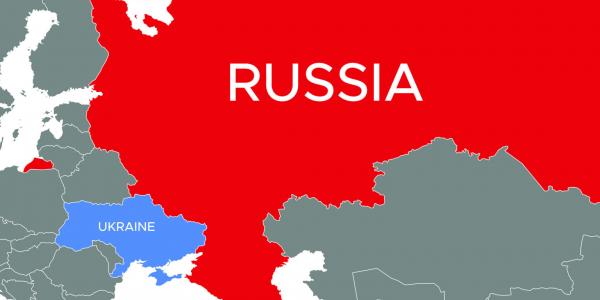
Panelists include:
This event is sponsored by the History Department and Office of the Provost at Washington University
in St. Louis.
click here to register for this webinar

This virtual panel features four presentations by disabled Brazilian scholars, artists, and activists working towards disability visibility and justice. Drawing from their own research and artistic-activist practices, panelists will address the intersections of gender, sexuality, race, and disability in Brazilian disability worlds; "disability" as a historical category in the Brazilian context; and the political and aesthetic potentialities of disabled people's self-representations in Brazil's social and cultural diversity. This panel promises to reveal productive points of convergence and divergence in disability studies in Brazil and the United States, and will generate dialogue on how U.S.-based disability scholars, artists, and activists might learn from work being done in the Global South. Panelists and presentations:
This event is open to all WashU faculty, students, and staff and will be recorded and later made publicly available. Presentations will be in Portuguese with simultaneous translation to English. CART captioning in English will be provided. The presentations will be followed by a question-and-answer session open to all attendees.
This event is presented by the WashU Latin American Studies Program (LASP) and the Brazilian Anthropological Association Disability and Accessibility Committee (CODEA-ABA). It is currently co-sponsored by:
For more information, consult https://elizawilliamson.com/events/
Photo by Libellum Amanda Bambu and Gabriela Amorim Photography | 2021 | Myelomeningocele | Maceió-AL
on Instagram at @amandabambu, @bibi_amorim
www.retratosdeficas.com/amanda-gabriela
Zoom Registration LinkProf. Aravecchia joined the departments of Classics and Art History and Archaeology in January 2018. He earned his doctorate in art history and master’s degree in ancient and medieval art and archaeology, both from the University of Minnesota. He is the Archaeological Field Director of the excavations at ʿAin el-Gedida, a fourth-century hamlet in Dakhla Oasis (in Egypt's Western Desert), and the Deputy Field Director at Amheida/Trimithis (also in Dakhla). He is also a Research Affiliate of the Institute for the Study of the Ancient World at New York University. In the Spring of 2016, he was the invited Chair of Coptic Studies at The American University in Cairo and in 2020 he was elected to the Board of Governors of the American Research Center in Egypt. In the Spring of 2021, he was awarded a Research Fellowship at Dumbarton Oaks, Washington, DC.
Prof. Aravecchia's research interests encompass the art and archaeology of Graeco-Roman and late antique Egypt. In particular, they focus on the origins and development of early Christian architecture in Egypt’s Western Desert. He is the main author of ʿAin el-Gedida: 2006–2008 Excavations at a Late Roman Site in Dakhla Oasis, Egypt (New York: ISAW/NYU Press 2018) and a co-author of An Oasis City (New York: ISAW/NYU Press 2015). He has also written articles and essays on related subjects, including early Egyptian monasticism.
At WashU, Prof. Aravecchia teaches courses on ancient art and archaeology and Classical languages. Previously, he taught at New York University, The American University in Cairo (Egypt), and Monash University in Melbourne (Australia).
Bio: Kyle G. Olson focuses on archaeological collections divided between museums in different countries to explore not only prehistoric patterns of polity-formation and cross-cultural exchange, but also the past, present, and future conditions of archaeological knowledge production.
Learn more about Professor Olson: https://anthropology.wustl.edu/people/kyle-g-olson
Abstract: In the past two decades, informal addiction treatment centers called anexos (annexes) have proliferated throughout Mexico. Run and utilized by low-income communities, these centers utilize captivity, coercion, and violence as instruments for recovery. Based on ten years of ethnographic research in Mexico City, this talk examines anexos’ social and therapeutic practices, exploring how they conjure up, amplify, and rework contemporary forms of affliction and violence in Mexico City’s peripheral neighborhoods. In doing so, it challenges the prevailing view of anexos as a punitive or criminal institution and reveals them to be a microcosm that makes visible the profoundly unequal and precarious world that Mexico is today.
Bio: I am an anthropologist working at the intersection of social and political theory, aesthetics, ethics, medicine, literature, postcolonial and feminist thought. I am interested in how history, inequality and violence play out in multiple social and political spheres, including the domestic and therapeutic.
Learn more about Professor Garcia: https://anthropology.stanford.edu/people/angela-garcia.
Abstract: Tuberculosis (TB) has affected humans, as well as other animals, for millennia. Here, I will discuss how ancient DNA allows us to examine the history of Mycobacterium tuberculosis and related strains in the M. tuberculosis complex (MTBC) which cause the disease. In particular, I will focus on patterns of pathogen exchange before and after the “Age of Exploration/Colonization” and discuss ways that TB may have adapted to humans and other animals. We initially analyzed MTBC genomes from three 1000-year old skeletal TB cases from coastal Peru and found that they are closely related to strains in sea mammals (specifically Southern Hemisphere pinnipeds). Our subsequent research shows that these pinniped-derived MTBC strains spread to inland parts of South America as well as North America likely by human-to-human transmission and suggests multiple jumps from pinnipeds. After contact, colonists introduced European TB strains, replacing pre-contact strains but the timing and extent of this is poorly known. Our data suggest that these post-contact strain distributions reflect the introduction of strains commonly circulating in the source areas of colonists.
Bio: Anne Stone is a Regents Professor in the School of Human Evolution and Social Change at the Arizona State University. Her specialization and main area of interest is anthropological genetics. Currently, her research focuses on population history and understanding how humans and the great apes have adapted to their environments, including their disease and dietary environments. This has three main strands: (a) population history, particularly in the Americas (b) the evolutionary history of the Great Apes, and (c) understanding the co-evolutionary history of mycobacteria (specifically Mycobacterium tuberculosis and M. leprae, the causative agents of tuberculosis and leprosy, respectively) with human and non-human primates. She has been a Fulbright Fellow (1992-93) and a Kavli Scholar (2007), and, in 2011, she was elected a fellow of the American Association for the Advancement of Science. In 2016, she was elected as a member of the Naitonal Academy of Sciences. She has served on the editorial boards of the American Journal of Physical Anthropology, the Journal of Human Evolution, Evolution, Medicine, & Public Health, and Molecular Biology and Evolution. She is currently a member of the editorial board of the Philosophical Transactions of the Royal Society, series B.
Learn more about Prof. Anne C. Stone here: https://search.asu.edu/profile/627984.
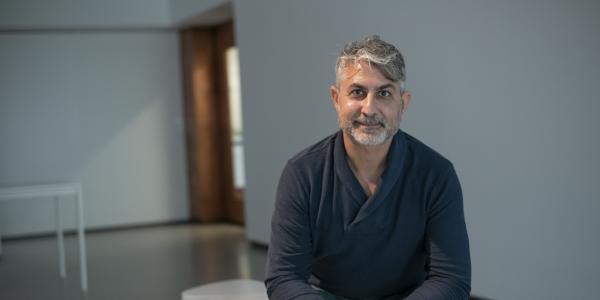
As the 20th anniversary of the Iraq war approaches, America seems to have moved on as the War on Terror becomes relegated to the past. I pose a question: how should we reckon with the afterlife of empire? As part of a book manuscript, in this talk, I build on close to two decades of ethnographic research on war injury and medical and public health practice in the Middle East to explore what I call “war biology”– how the wounding of war is registered in human and non-human life. The legacies of war linger, from the collapse and reconfiguration of healthcare infrastructures to the movement of refugees and patients across the region, to the rise of environmental toxicity and superbugs. Focusing on the uneasy nexus of militarism, environment, and the body, I propose “war biology” as a window into the aftermath of violence and the precarious futures of our planetary and global health.
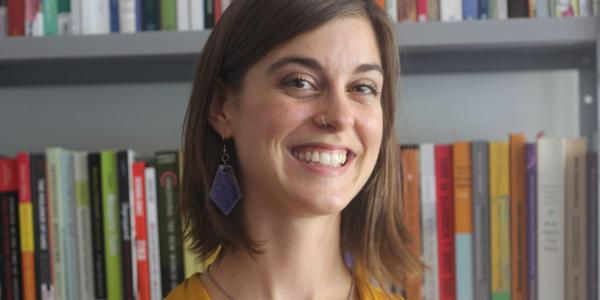
This talk traces how Brazilian mothers raising children diagnosed with congenital Zika syndrome mobilize diverse therapeutic technologies to cultivate the optimal development of their children’s bodyminds—what I call habilitative care. Drawing on several years of ethnographic engagement with Afro-Brazilian families affected by the 2015-16 Zika virus epidemic in Bahia, Brazil, I show how discourses of plasticity and potential animate investments in habilitative care. I argue that mothers’ care practices enact disabled children’s potential, insisting that they are worthy of therapeutic investment. Through habilitative care, mothers contest dominant narratives that cast their children, and Black and disabled children generally, as disposable and future-less.
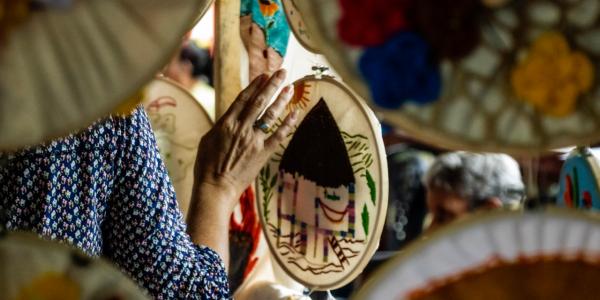
In the first part I will present the results of over 10-years of collaborative work conducted at the oldest child and maternity hospital in Colombia. Along with powerful photography, this works highlights how subaltern epistemologies of medical care were created, advanced, practiced and thought at the most important medical school in Colombia and how workers, university professors, and students experienced, confronted, and resisted the privatization of the country’s health care system. The second part deals with ongoing efforts to support initiatives that promote peace building and healing in Colombia’s southwest region of Caquetá. Importantly, this research considers the role of medicinal plants not only in supporting new community relationships between displaced farmers and indigenous communities, but also in strengthening ancestral knowledge and practices and inter-species forms of care that are fundamental for Colombia’s post-peace accord times.
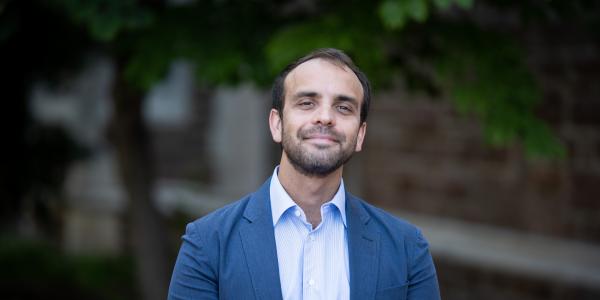
In France, transcultural psychiatry is a leading approach in supporting the mental health needs of immigrant and minority patient populations. The goal of transcultural psychiatry is to provide access to language interpretation and recognize the socio-cultural dimensions of mental illness. Transcultural psychiatry is also an important training site for budding psychiatrists and psychologists who wish to support individuals whose mental health conditions have been exacerbated by displacement and discrimination. Crucial to this training is a structure of apprenticeship, where apprentice therapists develop clinical and caring skills under the guidance of supervising therapists. Drawing on ethnographic fieldwork in four mental health clinics for immigrants and their descendants in Paris, I examine the affective and embodied dimensions of becoming a transcultural therapist. I attend to the smoothness and friction between apprentice therapists, many of whom identify as second or third-generation descendants of immigrants, and their supervisors, many of whom came to France as immigrants. Apprentice therapists found it affirming to reflect on their own experiences and forms of belonging in therapy. They also identified how supervising therapists policed their speech and instrumentalized these forms of belonging. I argue that transcultural psychiatry, which is meant to be inclusive of ways of belonging that have been devalued in France, may inadvertently produce exclusion. My analysis reveals how the tensions between apprentice and supervising therapists parallel evolving conceptualizations of belonging—in terms of race and religion—in France.
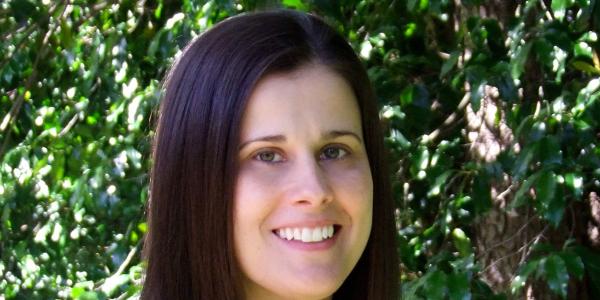
Lesley will be presenting her research about mental health treatment for survivors of the Khmer Rouge regime in Cambodia. From 1975-1979, the communist regime was responsible for the deaths of roughly two million people, or a quarter of the country’s population.
Her project focused on Testimonial Therapy, which was introduced to the country in 2009 in the context of transitional justice efforts, and adapted by Cambodian NGO workers. Although the therapy at first seemed to conflict with local ethno-psychological and spiritual beliefs that encourage forgetting and emotional detachment from past trauma, Lesley found the therapy proved surprisingly effective in several respects. Drawing on Cambodian Buddhist concepts, therapy participants were able to create narratives that they believed “had usefulness” for current society and offered regenerative effects for both individual wellbeing and social networks.
Emily Mendenhall will lecture on the history, practice, and politics of syndemic theory. Of anthropological origins, the syndemic idiom has become a central way of thinking about health and inequity in medicine and public health. In 2020, The Lancet said COVID-19 is not pandemic; rather, syndemic. Yet, in translation often anthropological ways of knowing can both inform and become misconstrued; and this has been a central contention for work on syndemic praxis. The examples discussed will center not only the social and intellectual life of syndemic theory but also on the author's fieldwork in Chicago, Delhi, Johannesburg, Nairobi, and Dire Dawa. Constructive ways of translating ethnographic knowledge into different methods, scales, and ways of thinking will be a focus.
This talk draws from an ethnography of a little-known therapeutic community of undocumented Mexican immigrants living in the United States. The foundation of this community is a grueling three-day healing ritual called an experience (la experiencia). This talk describes one such experience that took place in the Northern California forest in 2019, focusing on its novel practice of cathartic writing. I argue that this writing practice is far more than a tool for self-care or self-expression; it is also a medium for collectivity and political critique, one that helps us examine the limits of the biomedical self. By writing a “self” that is never alone, the experience provides a mode of care and healing that enables immigrants to collectively weather and represent the myriad forms of violence that accompany undocumented life.
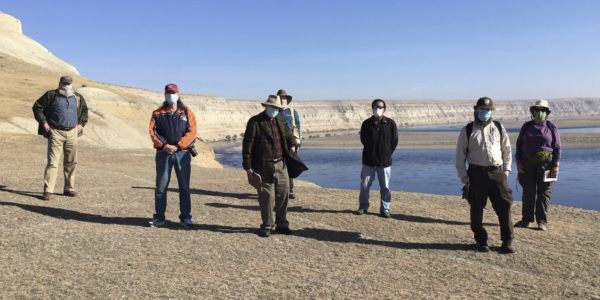
In the US, one patient on three seen in an epileptology clinic is diagnosed with a Functional Neurological
Disorder (FND). Nevertheless, their seizures look and feel exactly like epilepsy. FNDS are disorders
manifesting like well-known conditions, such as epilepsy or Parkinson disease, but lacking any of the
medical evidence required for such diagnoses. FND patients test negative to all examinations; they seem
biologically healthy, but they are severely impaired. Many of them are unable to work, and develop
depression and social withdrawal related to their condition. After a controversial history of dismissal,
accusations of malingering and stigma, and a long series of different labels, such as conversion,
psychosomatic disorder and even hysteria, FNDS are now gaining a growing interest from different
disciplines. This talk will present the preliminary results of a mixed-method project supported by the
National Science Foundation, the first project exploring FNDS from an anthropological perspective. It will
focus on the sociocultural factors impacting FNDS, in particular trauma (1), over-achiever and/or over-
burdened personalities (2) and other social stressors such as repeated miscommunication and/or exposure
to disorienting transitions (3). FNDS offer a unique observatory on the sociocultural scaffolding of health,
requiring to rethink deeply engrained assumptions about mind/body and individual/society divides. In this
line, the talk will explore the relationship between FNDS and migration, with a focus on the recent stream
of Miskitu people, and Afro-Indigenous population of Central America migrating to the US to escape
political persecution in Nicaragua.
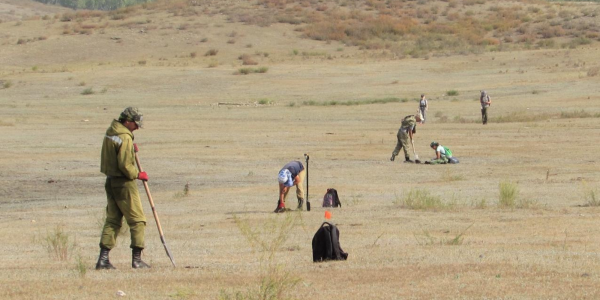
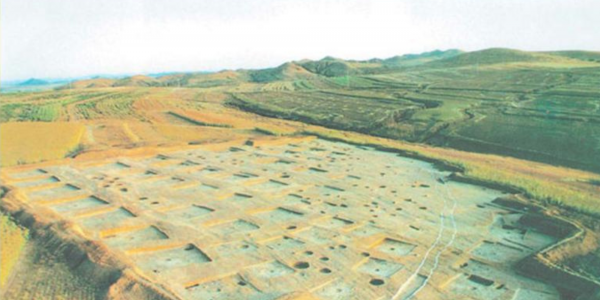
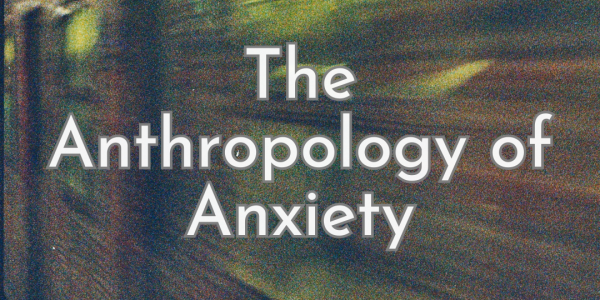
The event will feature 4 scholars who have been working collaboratively over the past few years on this topic: Professors Nutsa Batiashvili, Katie Hejtmanek, Susan Lepselter, and Rebecca Lester. They will each give papers (about 20 min each), followed by Q&A. A reception will follow.

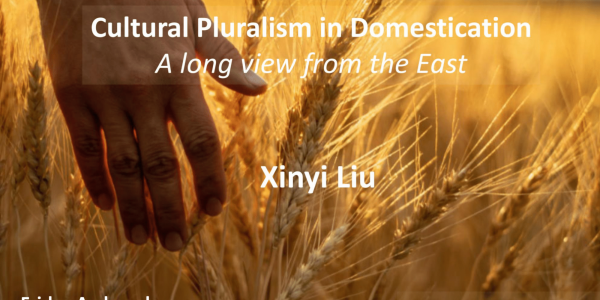
This week, Dr. Xinyi Liu will be giving his talk entitled, "Cultural Pluralism in Domestication: A long view from the east." We will be meeting in G052 from 4-5pm. All are welcome!
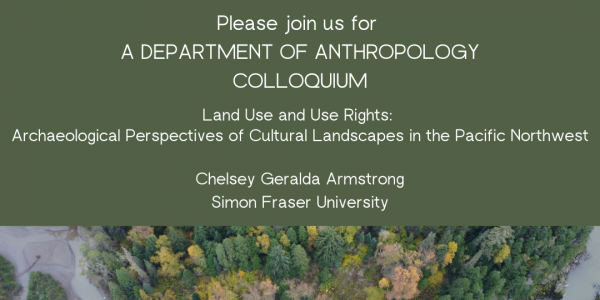
Please join us on April 4 at 4pm as Dr. Chelsey Geralda Armstrong talks about Land Use and Use Rights: Archaeological Perspectives of Cultural Landscapes in the Pacific Northwest! Reception to follow!
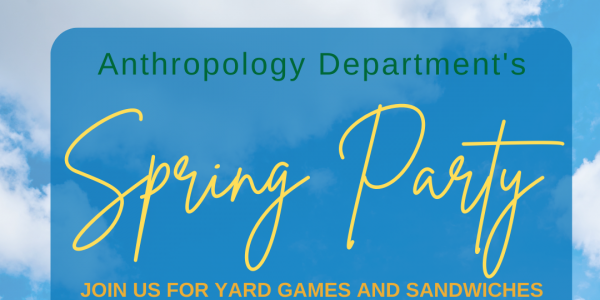
Come party like an anthropologist as we enjoy sandwiches, and yard games, and just relax before the semester ends. It's free food and free fun. Bring a friend or meet a new one while you're here!
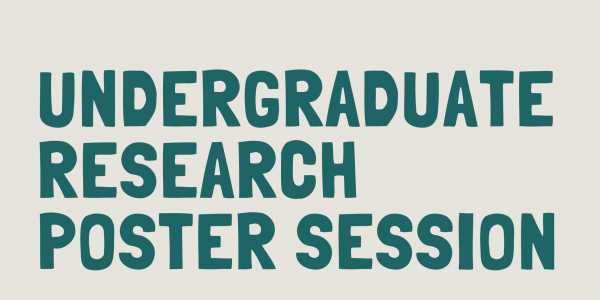
Our undergraduate scholars are ready to present their research! Come by to see what they've learned while studying with professors at Washington University. If you're interested in an Anthropology major or in our honors program this is a great place to see what it's all about.

Presented by:
Everett Bandy
Tribal Historic Preservation Officer: Quapaw Nation
Director: Quapaw Nation Historic Preservation Program
and
Elizabeth Horton
Paleoethnobotanist: Rattlesnake Master LLC
Cultural Resources Reviewer: Cultural Heritage Partners PLLC
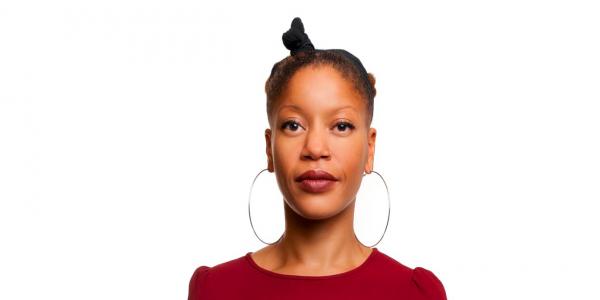
Khiara M. Bridges is a professor of law at UC Berkeley School of Law. She has written many articles concerning race, class, reproductive rights, and the intersection of the three. Her scholarship has appeared in the Harvard Law Review, Stanford Law Review, the Columbia Law Review, the California Law Review, the NYU Law Review, and the Virginia Law Review, among others. She is also the author of three books: Reproducing Race: An Ethnography of Pregnancy as a Site of Racialization (2011), The Poverty of Privacy Rights (2017), and Critical Race Theory: A Primer (2019). She is a coeditor of a reproductive justice book series that is published under the imprint of the University of California Press.
Come meet the Anthropology Department at Wash U! As part of the Bear Beginnings departmental welcomes for incoming students, the Anthropology is hosting an Open House on Tuesday, August 23, from 11:15am-12:30pm. You will be able to learn about our program, meet professors, and discover some of the cool research that's happing right here on campus. We are excited to meet you!
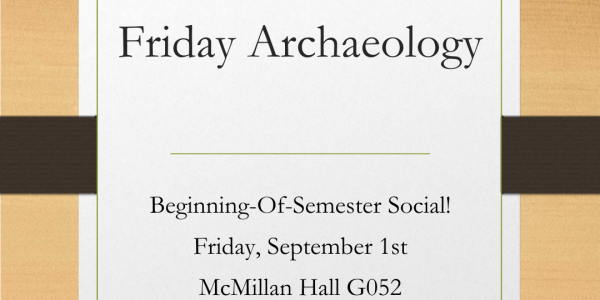
Our first Friday Archaeology of the new school year. Come say "hi", see old friends, and meet new ones. Cool people, interesting lectures, FREE FOOD. Whether you're an experienced archaeologist or just getting started you are welcome to learn more at Friday Archaeology!
Every Friday, 4-5pm, McMillan G052
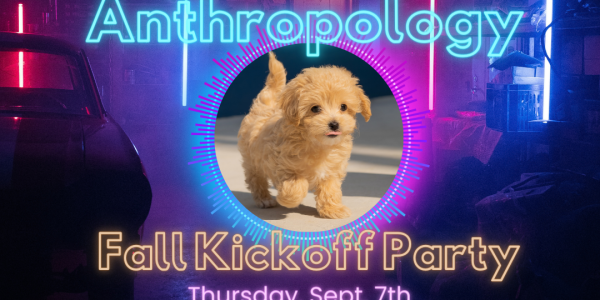
Come and say hi to your friends, professors, and favorite department support staff at the Anthropology Department's Fall Kickoff Party! We're having pizza and other glorious foods in the McMillan Cafe at 11:30am on Thursday, Sept. 7th.
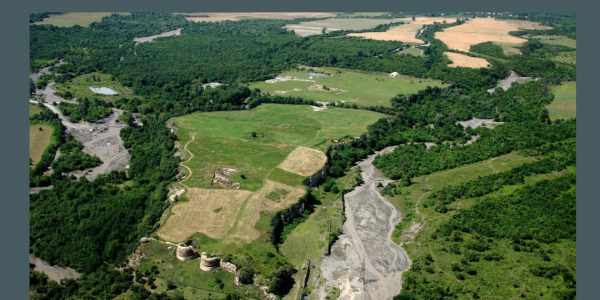
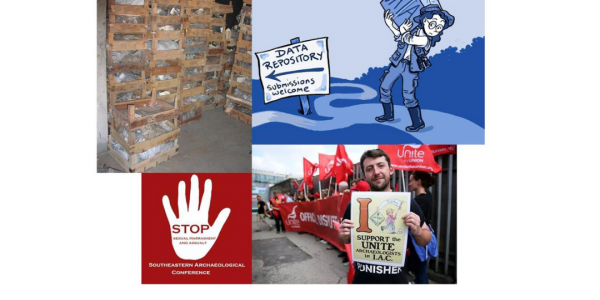
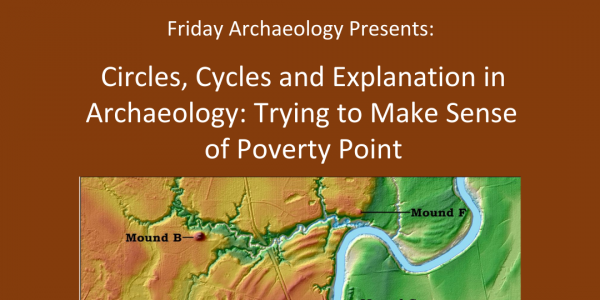
This Friday, TR Kidder from the anthropology department will be giving his talk: Circles, Cycles and Explanation in Archaeology: Trying to Make Sense of Poverty Point
We will be meeting in McMillan G052 from 4-5pm with snacks and beverages. Mark your calendars! All are welcome.
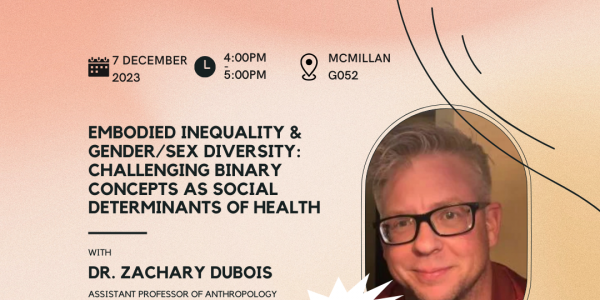
Dr. Zachary Dubois specializes in resilience, social determinants of health, embodied stigma and inequality, and expanding and adding nuance to current conceptualizations of gender and sex. His research applies community-based, intersectional, mixed-methods approaches centering on the lived experience and health of transgender and gender-diverse people. Projects include pioneering work elaborating understandings of stigma and gender minority stress experiences of transgender and gender diverse people through life history and ethnographic interviews and mapping these onto the body as embodied stressors through the integration of minimally invasive biomarker measures with an aim of addressing health disparities in these populations.
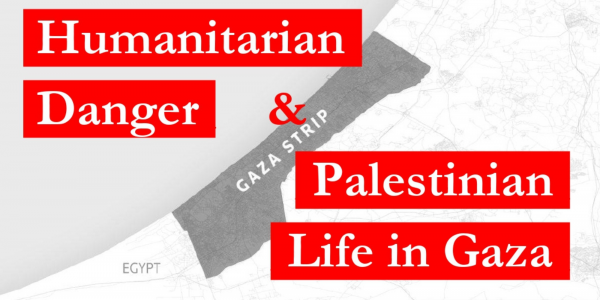
The Anthropology Department; Jewish, Islamic, and Middle Eastern Studies Department; and Center for the Humanities invite you to join us for a talk presented by anthropologist and historian Ilana Feldman.
Ilana Feldman is Professor of Anthropology, History, and International Affairs at George Washington University. Her research has focused on the Palestinian experience, both inside and outside of historic Palestine, examining practices of government, humanitarianism, policing, displacement, and citizenship. She is the author of Governing Gaza: Bureaucracy, Authority, and the Work of Rule, 1917-67 (2008), Police Encounters: Security and Surveillance in Gaza under Egyptian Rule (2015), Life Lived in Relief: Humanitarian Predicaments and Palestinian Refugee Politics (2018) and numerous related articles, for which she has conducted ethnographic and archival research in Gaza, the West Bank, Jordan, Lebanon, and Egypt.
This talk will explore the multiple forms of humanitarian danger that are confronting Palestinians in the Gaza Strip. The massive humanitarian crisis caused by Israeli bombardment and siege of Gaza is a clear danger. The healthcare system has been decimated by attack, starvation is looming as a product of the restriction on entry of food and fuel, the vast majority of the population has been displaced, and a significant portion of its buildings (both public buildings and homes) are destroyed or damaged. It is only possible to understand, and respond to, this overwhelming threat by also understanding how “humanitarianization” is repeatedly used as a weapon against Palestinians. The talk will situate today’s humanitarian dangers within a longer historical context in which Gazans have repeatedly confronted such dynamics. This talk will be co-hosted with the Center for the Humanities and the Department of Jewish, Islamic, and Middle Eastern Studies.
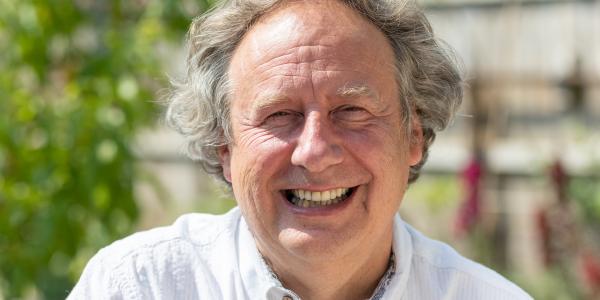
This talk summarizes 20 years of excavation and research at the UNESCO World Heritage site of Çatalhöyük, Turkey, featuring rapid environmental events and long-term social changes in the Near East, 9000-7500 years ago.
Reception to Follow
EVENT CO-SPONSORED BY ANTHROPOLOGY AND THE CENTER FOR THE ENVIRONMENT
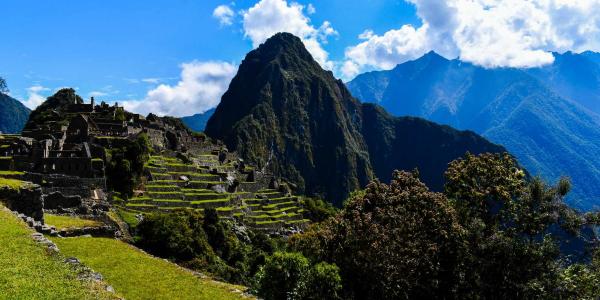
Every year, we welcome hundreds of newly-arrived first-year and transfer students to campus. As a part of the broader Bear Beginnings programming, the WashU Department of Anthropology will be hosting a departmental Open House on Tuesday, August 20, 2024 from 10:00 - 11:30 a.m. in the McMillan Cafe.
During this event, incoming students will have the opportunity to meet with Anthropology faculty, staff, and current students and learn more about the countless opportunities available through our program. Tours of our labs will be given by professors at 10am, 10:30, 10:50, and 11:10. Come meet our department and find out if Anthropology will soon be your campus home.
